Plan A
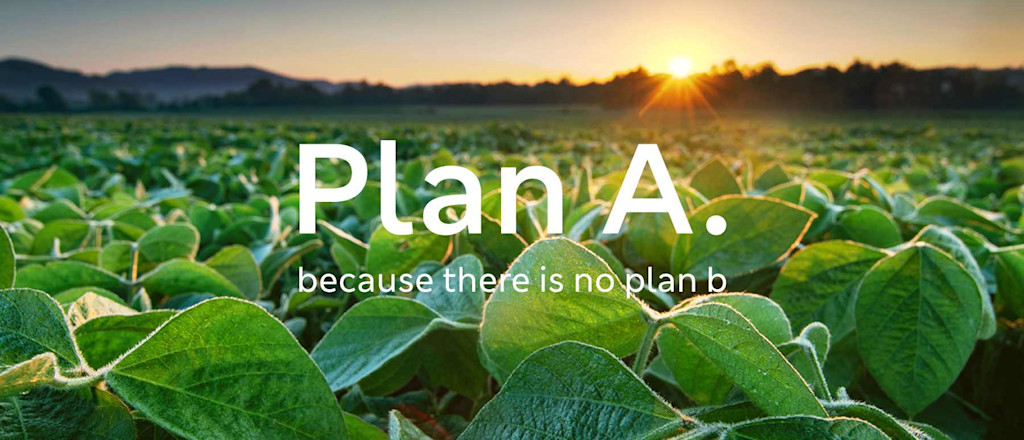
Our food sourcing standards
Discover why when we say "this is not just food," we mean it. Delve into the stories behind our incredible products, meet some of our dedicated M&S Select Farmers, and learn more about our approach to sustainability and sourcing.
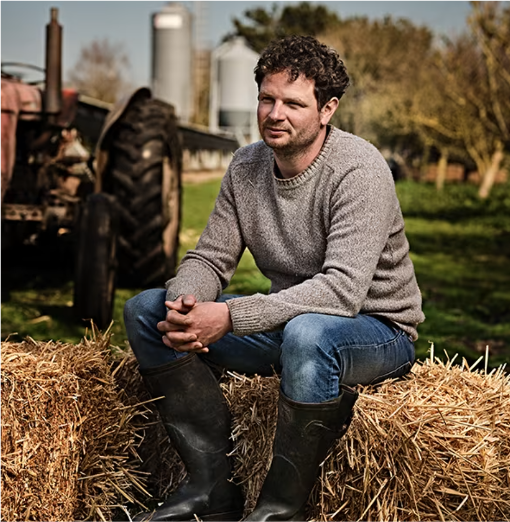
100% RSPCA Assured Oakham™ Gold chicken
We have more RSPCA Assured products than any other national retailer, including our slower-reared, Oakham™ Gold fresh chicken. The higher-welfare Oakham™ Gold birds are fed a multigrain diet and have more space to roam. We believe slower rearing is the more natural approach, meaning the birds have a better quality of life, can be more active, and can better express their natural behaviours.
Meet our chicken farmer Andy
Andy farms in Somerset and is one of the proud M&S Select Farmers supplying us with Oakham™ Gold chicken. These chickens are naturally slower-reared for maximum flavour, and have 20% more space to roam than birds reared to the industry standard. They also have straw bales to perch on, room to spread their wings and even toys to play with. Plus, all M&S Oakham™ Gold chicken is 100% RSPCA Assured.
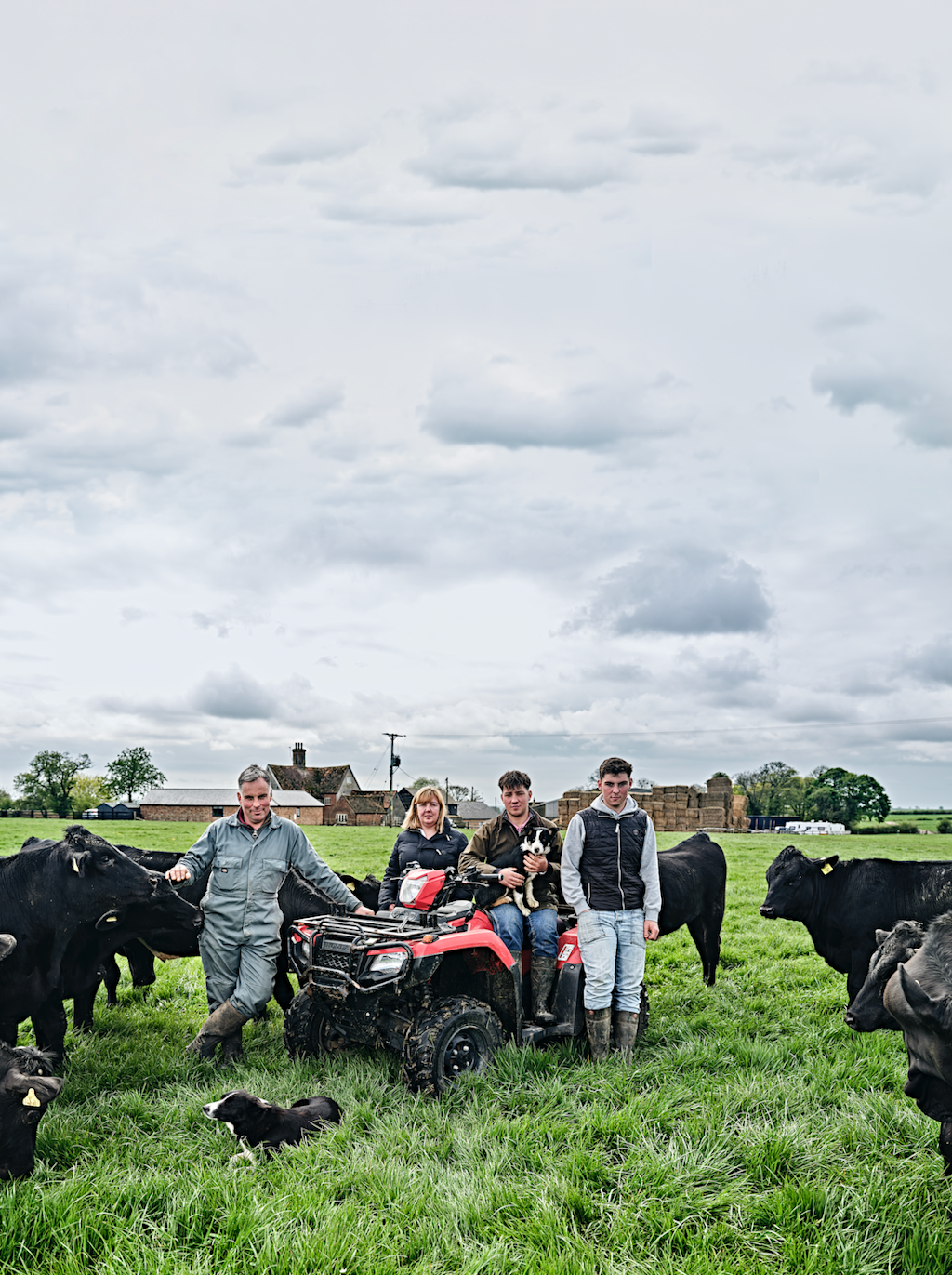
M&S beef is 100% traceable
Just like the carefully chosen farmers we work with, we know when it comes to beef, great taste starts in the field. That’s why we're the only national retailer that can trace 100% of our beef back to the farm and animal it came from across our entire Foodhall, from steaks to the mince in our lasagne. Plus, it’s 100% British.
Meet our beef farmers
James from Buckinghamshire is one of our dedicated M&S Select beef farmers. At Cowley Farm, he produces incredible Aberdeen Angus beef. James provides us with perfectly marbled, high-quality beef using the best breeds. He also works hard to encourage natural wildlife on his farm by having uncultivated field margins, large areas of hedges and woodlands and fenced-off riversides.
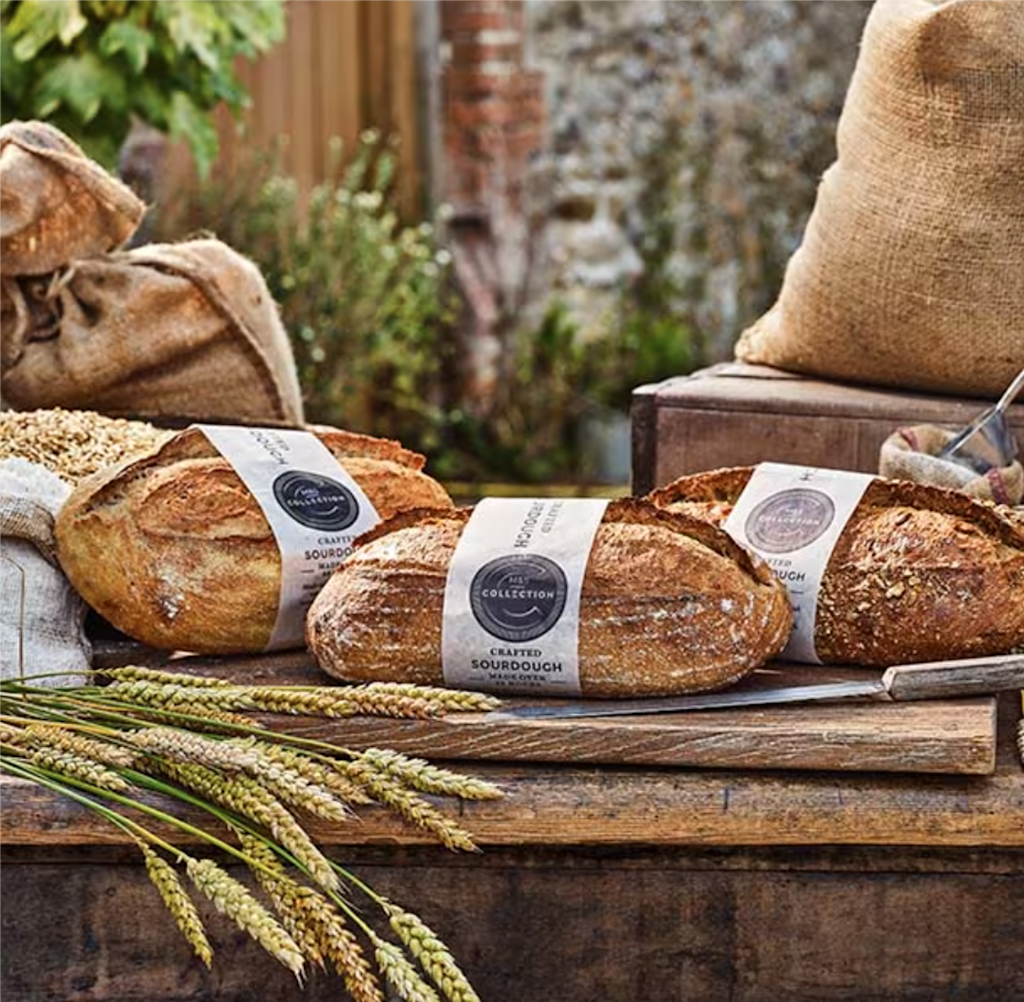
Meet our sourdough maker
Our Collection sourdough loaves, baguettes and rolls are made to an exclusive recipe at Village Bakery, in North Wales, run by brothers and third-generation bakers Robin and Christien Jones. The bakery is run using energy-efficient ovens and with minimal waste, and surrounded by six acres of woodland maintained by North Wales Wildlife Trust. Our slow-proved Collection sourdough takes 30 hours to make, allowing it to develop an intense flavour, and no commercial yeast is added. Most of the wheat in our Collection sourdough is grown by a network of British farmers who work with innovative regenerative farming company Wildfarmed. Wildfarmed encourage growers to embrace regenerative farming practices, helping to improve biodiversity, soil health and climate resilience whilst reducing carbon emissions from food and farming.
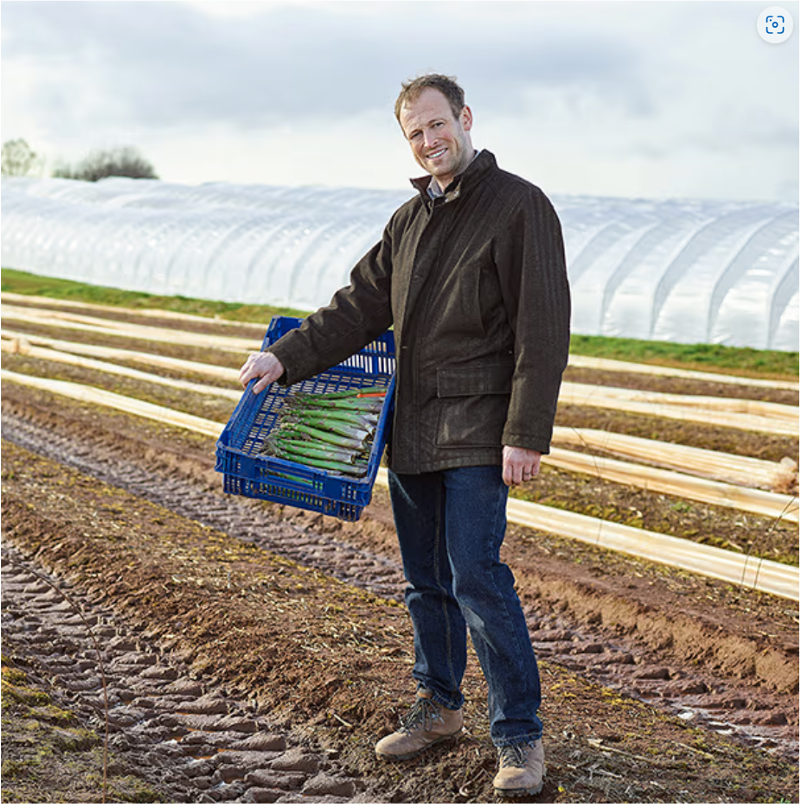
Beautifully British Asparagus
Some of our British asparagus is sourced from the Chinn family, on their farms in the beautiful Wye Valley. The light sandy soil in the sheltered valley is perfect for asparagus production.
Chris Chinn and his fourth-generation farming family have been supplying us with British asparagus since 2007 – because nobody understands this stunning spring crop like they do. The Chinn family are committed to working in harmony with nature. “We have grass waterways within our fields and add wildflower mixes to attract pollinators,” says John. They also work with Cranfield University, experimenting with winter crops to build up organic matter, improve the soil’s microbiome and increase earthworm numbers because, as John says, “Healthy soil grows healthy food.”
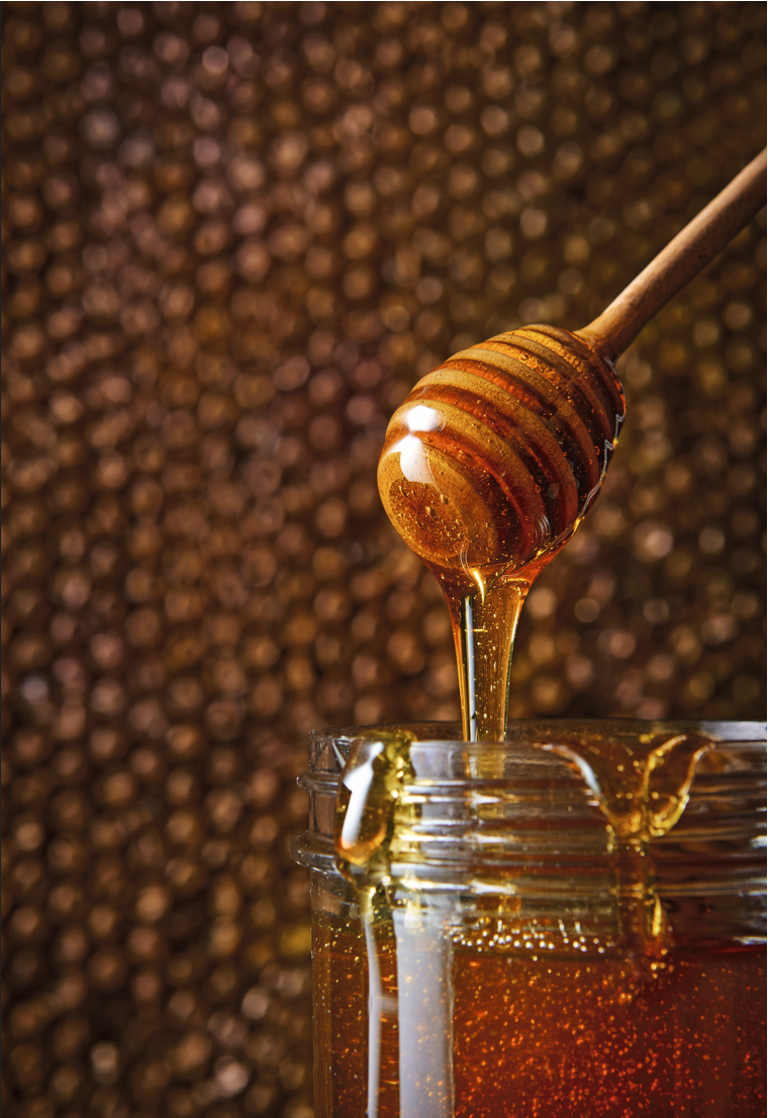
Heavenly honey
30 of our British M&S Select Farms are home to more than 1000 beehives. These busy bees are busy helping us to produce our Collection Single Apiary Select Farms British Honey. The honey comes in lots of flavours and colours, to reflect the different landscapes on the farms where the bees have foraged. By introducing honeybees to M&S Select Farms, we’re supporting local British honey production and our Select Farmers to pollinate their crops.
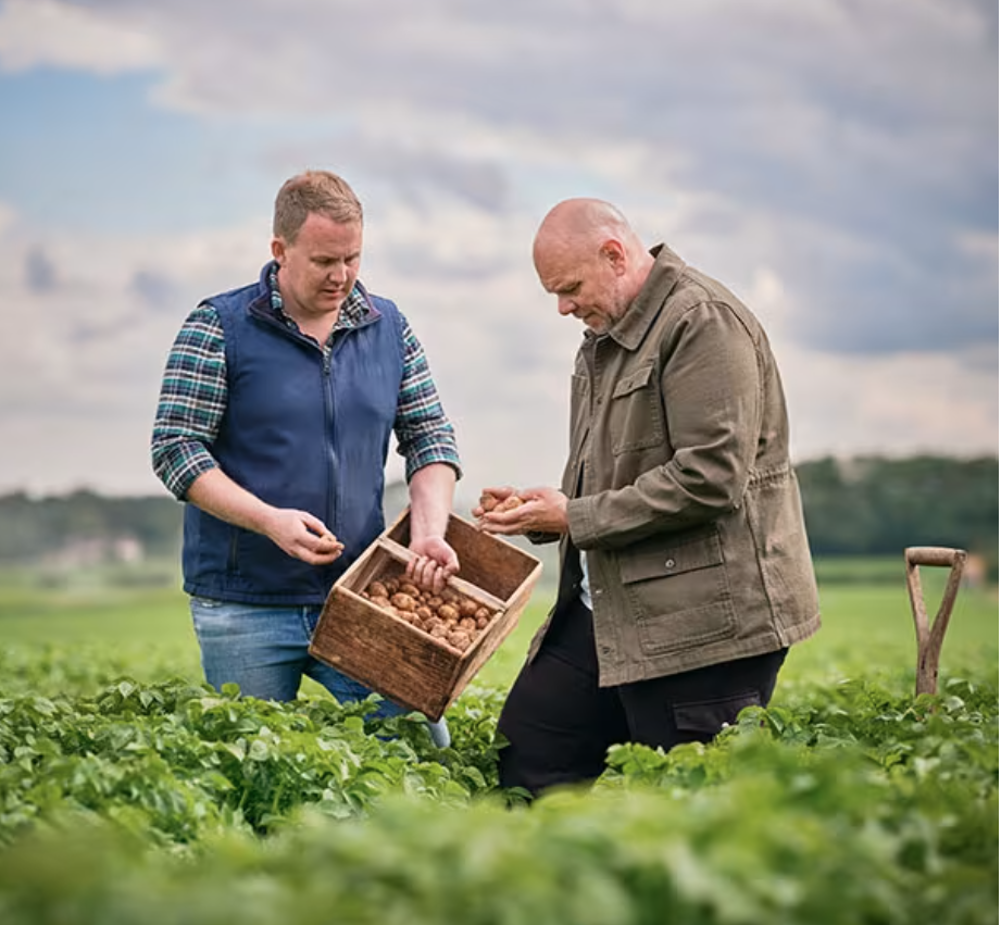
New potatoes
Our M&S Select Farmers select the very best British New Potatoes, harvesting from before sunrise to ensure only the top spuds make it to store. We aim to have them delivered within 48 hours of being picked – you can’t get much fresher than that.
Meet the farmer - Crow Hall Farm in Norfolk is one of our trusted suppliers of New Potatoes. Managed by Nick Goff, the farm's deep sandy soils and high sunshine levels are what gives the potatoes their sweet flavour.
These perfect potatoes are grown in line with our Farming With Nature initiative – our commitment to protecting and enhancing wildlife habitats across the UK.
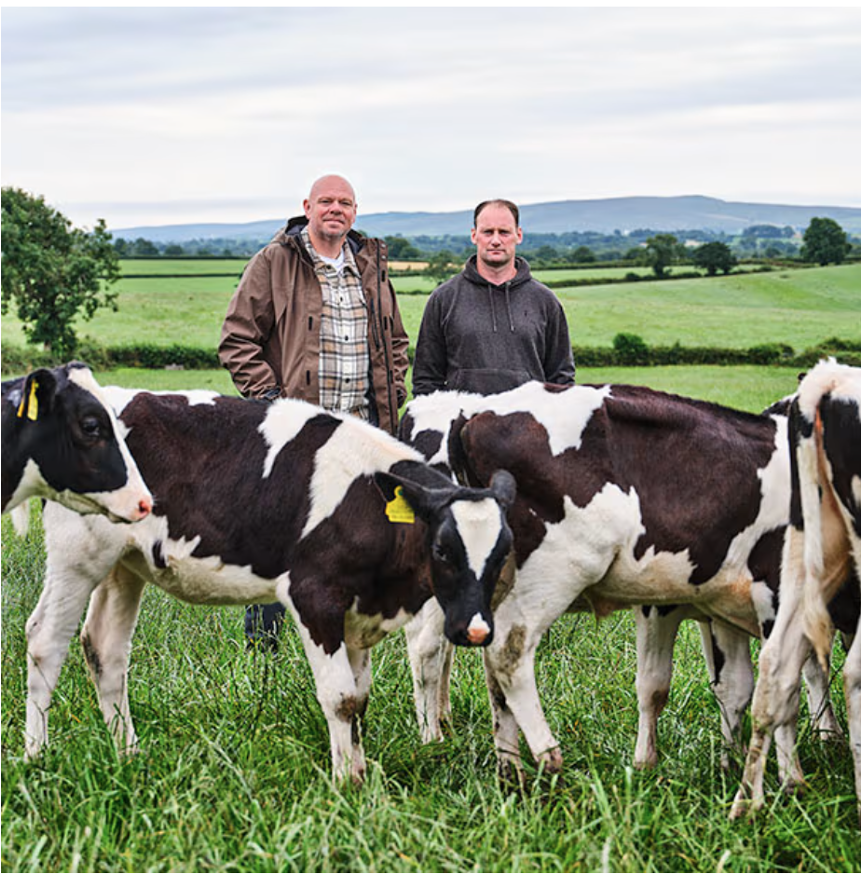
M&S Milk
We're reducing our carbon footprint by using a new feed supplement to lower methane emissions from M&S Select Farms dairy cows. Plus in 2025 we’re celebrating 26 years of the M&S Milk Pledge – our commitment to always paying farmers a fair price.
Meet dairy farmer David
David from Northern Ireland is one of our dedicated M&S Select dairy farmers. His healthy, contented cows are fed on a 100% soya-free and grass-based diet supplemented with nutritious cereals and pulses. David is passionate about animal welfare and continues to invest in cow comfort, including buying toys for the cows and young stock to play with. The location of the farm also allows him to grow lush grass all year round, ensuring the cows can graze at every possible opportunity.
David's farm includes 45 acres of natural habitats where lapwings have been spotted, there's four acres of mature trees and David completed 10 years of hedge and tree planting under the Countryside Management Scheme
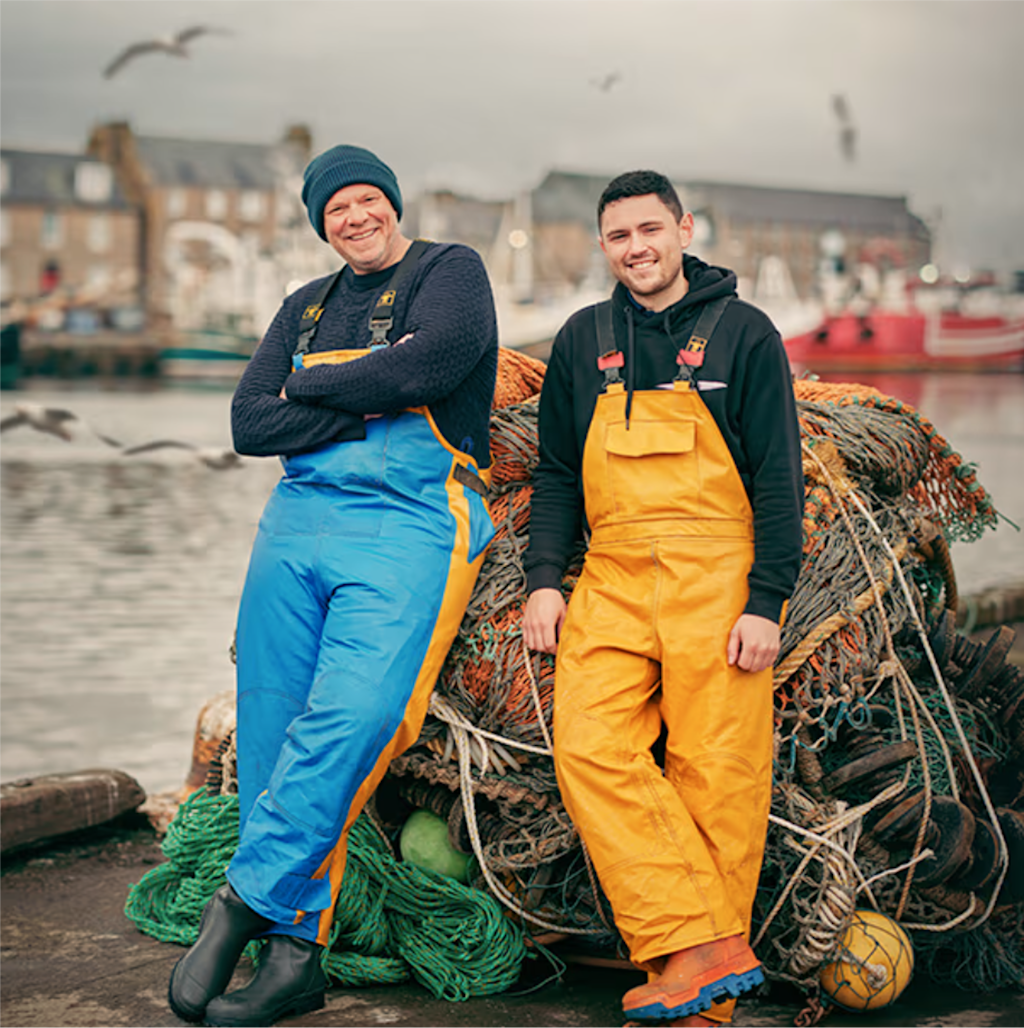
Fantastic fish and seafood
At M&S, we’ve had a responsible seafood sourcing policy in place for more than 20 years. That means we can trace all our fish – from fishcakes to fresh cod and tinned tuna – back to where it’s caught. We only work with fisheries who adhere to our strict sourcing policy and endeavour to improve their sustainability. Plus, we only source from farmed fish producers who help us to deliver our high animal welfare standards. We also work alongside fisheries around the world to ensure best practice for crew welfare, promote responsible fisheries management and advocate for policy reform to protect our precious oceans. On top of all that, we're proud to say we're the only national retailer selling 100% pole & line caught skipjack tuna. All of our salmon is now Caledonian Gold and one portion of M&S Caledonian Gold Salmon provides your weekly Omega 3 requirement. Our fish are RSPCA Assured and fed a nourishing diet. One of Scottish Sea Farms Farm Managers, on the west coast of Scotland says “There’s no secret as to why M&S salmon tastes so good,”. Our salmon are kept in this beautiful coastal environment, swimming against strong currents and tides so they grow into really healthy fish. They are fed a diet high in omega 3 and naturally high in vitamins.”
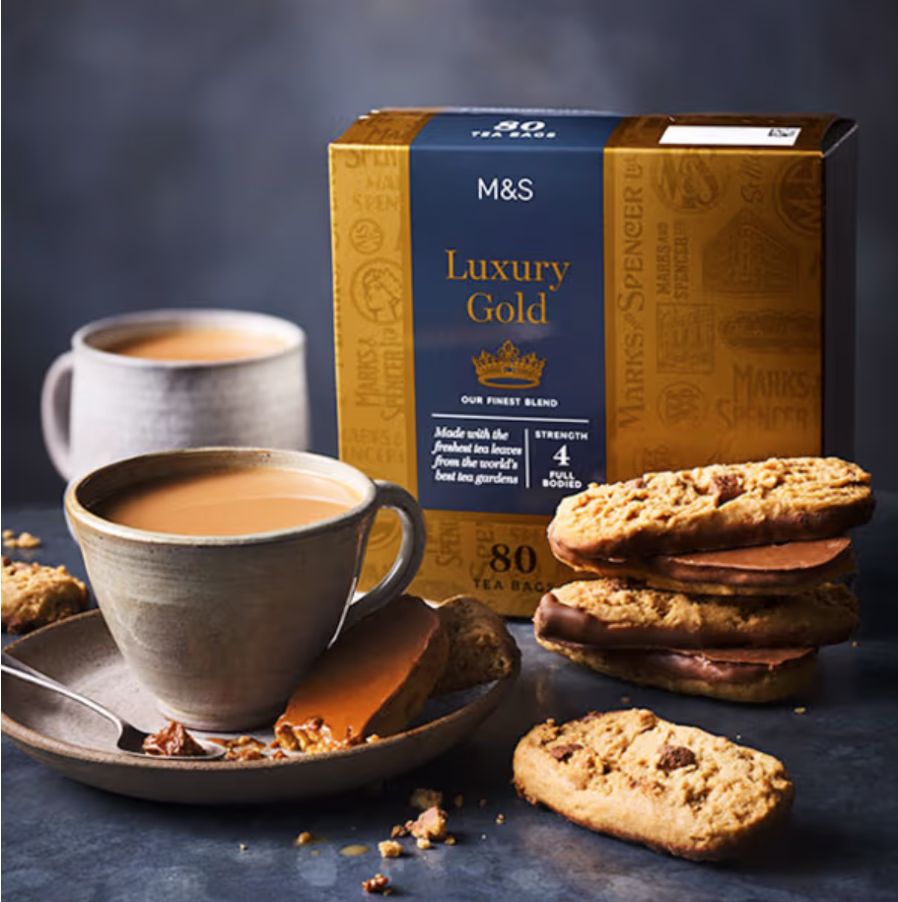
Faitrade tea and coffee
Our tea and coffee is 100% Fairtrade. For 40 years, we’ve worked with one single expert supplier to responsibly source the best-tasting and best-quality tea. Our supplier sources from tea gardens in the best-known tea growing countries on our behalf, then blends the teas for our stores and M&S Café ranges. All our beans, ground coffee, bags and pods are Fairtrade, arabica and premium-grade. Between professional tasters at origin and in the UK, coffee for M&S products is taste-checked for quality at least five times.
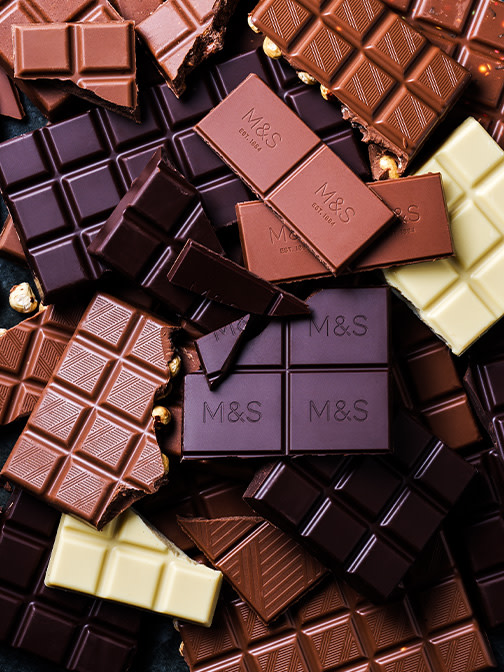
Responsibly sourced cocoa
At M&S, we are committed to sourcing our cocoa responsibly and to supporting cocoa producers and their communities. The cocoa industry faces significant challenges, including the unequal pay of cocoa farmers, which hinders their ability to reinvest in their farms to maintain soil fertility and produce high-quality cocoa pods. Therefore, M&S has been committed since 2016 to ensuring all the cocoa used in our own-brand products is sourced through trusted partner schemes and certifications, to help secure our access to this vital ingredient in years to come as well as improving the lives of growers. In 2024, we went even further and updated our Cocoa Standard to stipulate that our suppliers can only use Independently Certified Cocoa through Fairtrade or Rainforest Alliance. These independent certification schemes enhance the lives of farmers and their communities, promote human rights and support farmers to adapt to climate change and build their climate resilience.
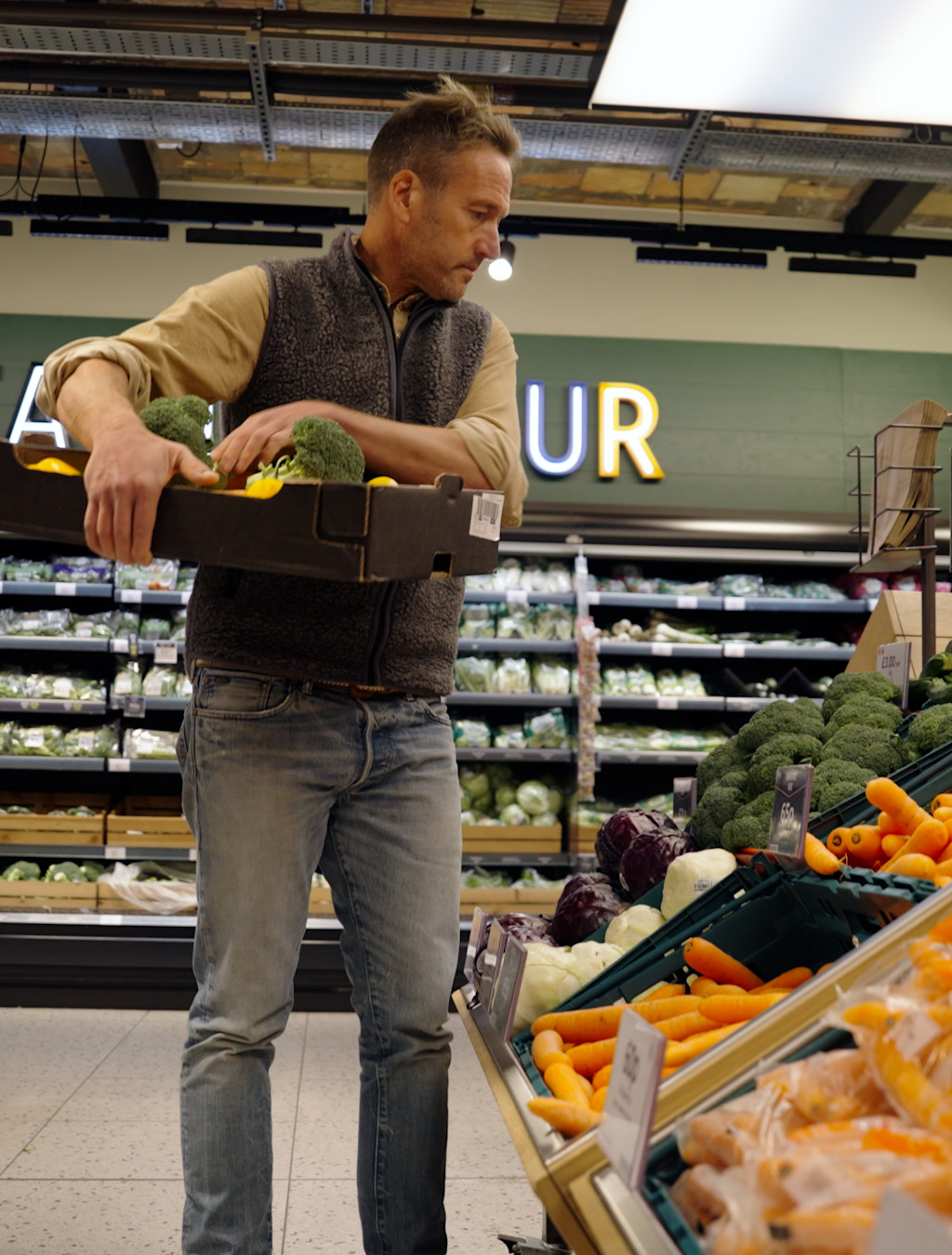
Ben Fogle
Find out about our Plan A Food Initatives with Ben Fogle. Watch Now
Clothing & Home
Introduction
At Marks & Spencer, we design, create and source our products with a commitment to using preferred raw materials. We understand that all raw materials have an impact on the environment, and have a set of targets in place, framed by robust and evolving policies, to help us reach our net-zero goals. Those targets are:
By April 2026, our core raw materials (cotton, polyester and man-made cellulosic fibres) will be converted to preferred alternatives. Together, these account for more than 80% of our materials mix
By April 2031, all other raw materials used in Clothing & Home products will be converted to preferred alternatives
Our preferred alternatives are:
Cotton: sourced via the mass-balance Better Cotton system, recycled cotton or organic cotton
Polyester, nylon, and acrylic: from certified recycled sources
Man-made cellulosic fibres: sourced through low-risk supply chains to ensure the wood pulp used comes from responsibly managed forests
Leather: sourced from LWG-certified finishing tanneries
Pure cashmere: sourced via the Sustainable Fibre Alliance (SFA)
Wool, mohair, and alpaca: sourced via the Responsible Wool Standard (RWS), Responsible Mohair Standard (RMS) or Responsible Alpaca Standard (RAS), or from recycled sources
Feather and down: sourced through recycled or certified options, including the IDFL Down Standard (IDS), the Responsible Down Standard (RDS) and the Global Traceable Down Standard (TDS)
The transition from using conventional raw materials to preferred alternatives is an essential part of our journey towards achieving net-zero – a commitment we aim to reach by 2040. Our preferred alternatives are all backed by third-party standards, ensuring a complete chain of custody and accurate certification. This allows us to confidently verify our materials and the claims we make about them. Keep reading to find out more about our raw materials and the standards behind them.
At M&S, every product we make adheres to guidelines and sourcing policies that ensure our quality and sustainability standards are met. Our Global Sourcing Principles set out our minimum requirements and expectations for how we and our supplier partners conduct business – to uphold human rights and meet labour, environmental, ethical and legal requirements in their own operations and supply chains.
We work closely with our supply chain to source preferred materials. We assess these against sustainability criteria and rely on recognised industry standards to ensure compliance of their chain of custody. This compliance is regularly checked, and we scale up best practices. We also regularly review our policies and definition of preferred alternatives to make sure they reflect best practices and support continuous improvement within our supply chain.
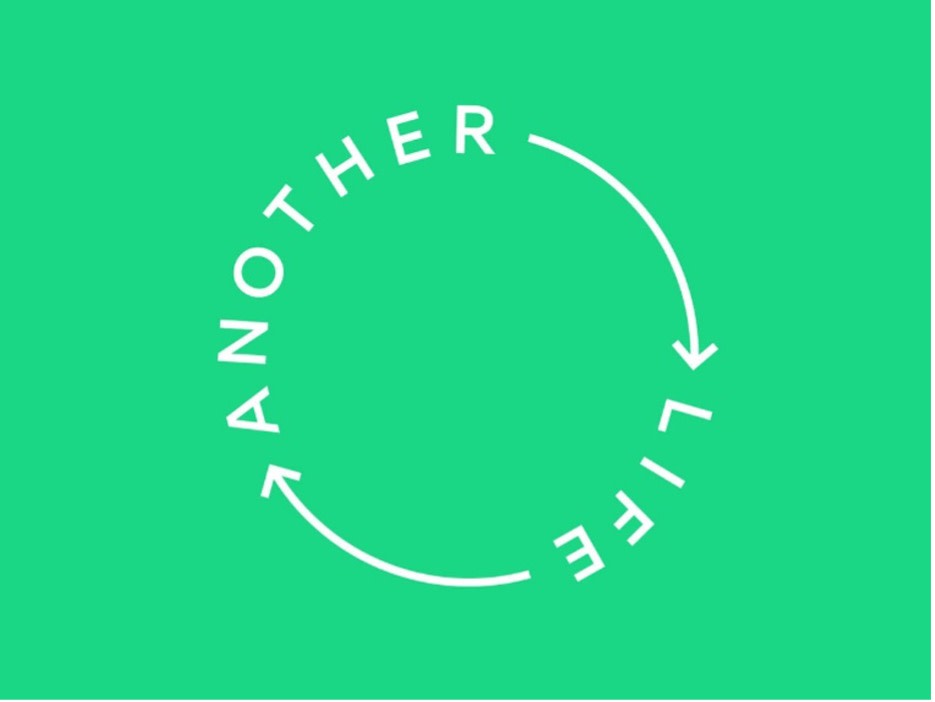
Another Life.
Our initiative Another life. brings all our circularity services together to offer a more seamless experience for customers who are looking to support a shift to a more circular economy. It includes our beauty takeback scheme with Handle, our repair partnership with SOJO and our long-running clothes donation partnership with Oxfam, formerly known as ‘Shwopping’.
MATERIALS
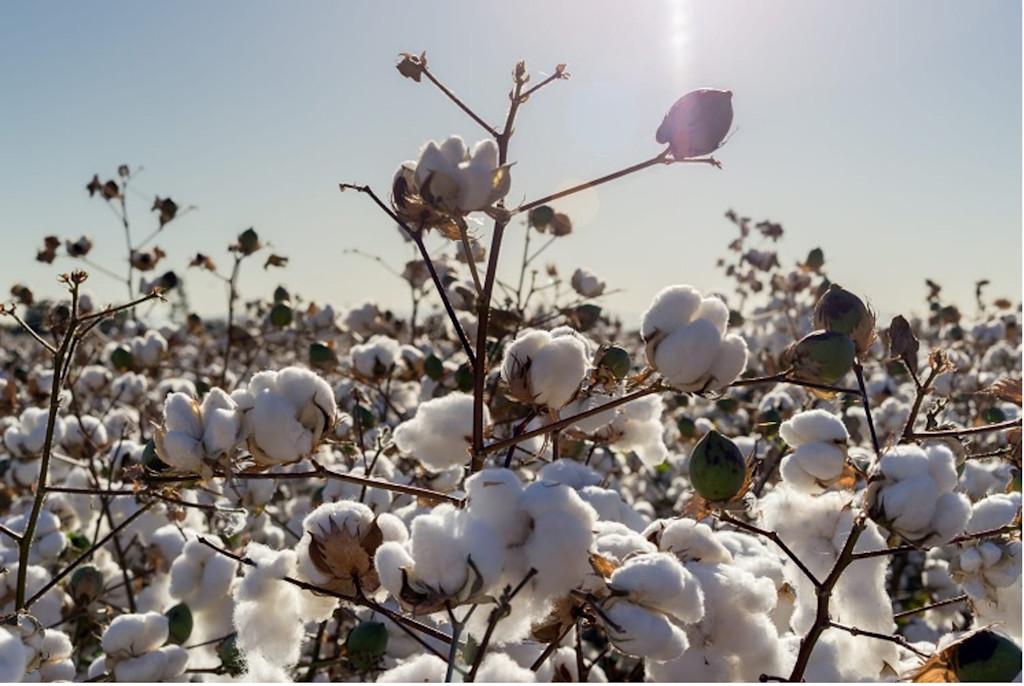
Cotton
Cotton is a natural fibre farmed across the planet and known for its exceptional softness and breathability. At M&S, it accounts for more than 50% of our material portfolio, making it our main raw material. Since 2019, all the cotton used for our clothing is certified organic, certified recycled or responsibly sourced via Better Cotton. We are on track to achieve the same standard for homeware textiles by April 2026.
Organic cotton
Organic cotton relies on non-GMO seeds and must be grown with very strict restrictions on synthetic pesticide and fertiliser use. We recognise two certifications: the Organic Cotton Standard (OCS) and Global Organic Textile Standard (GOTS).
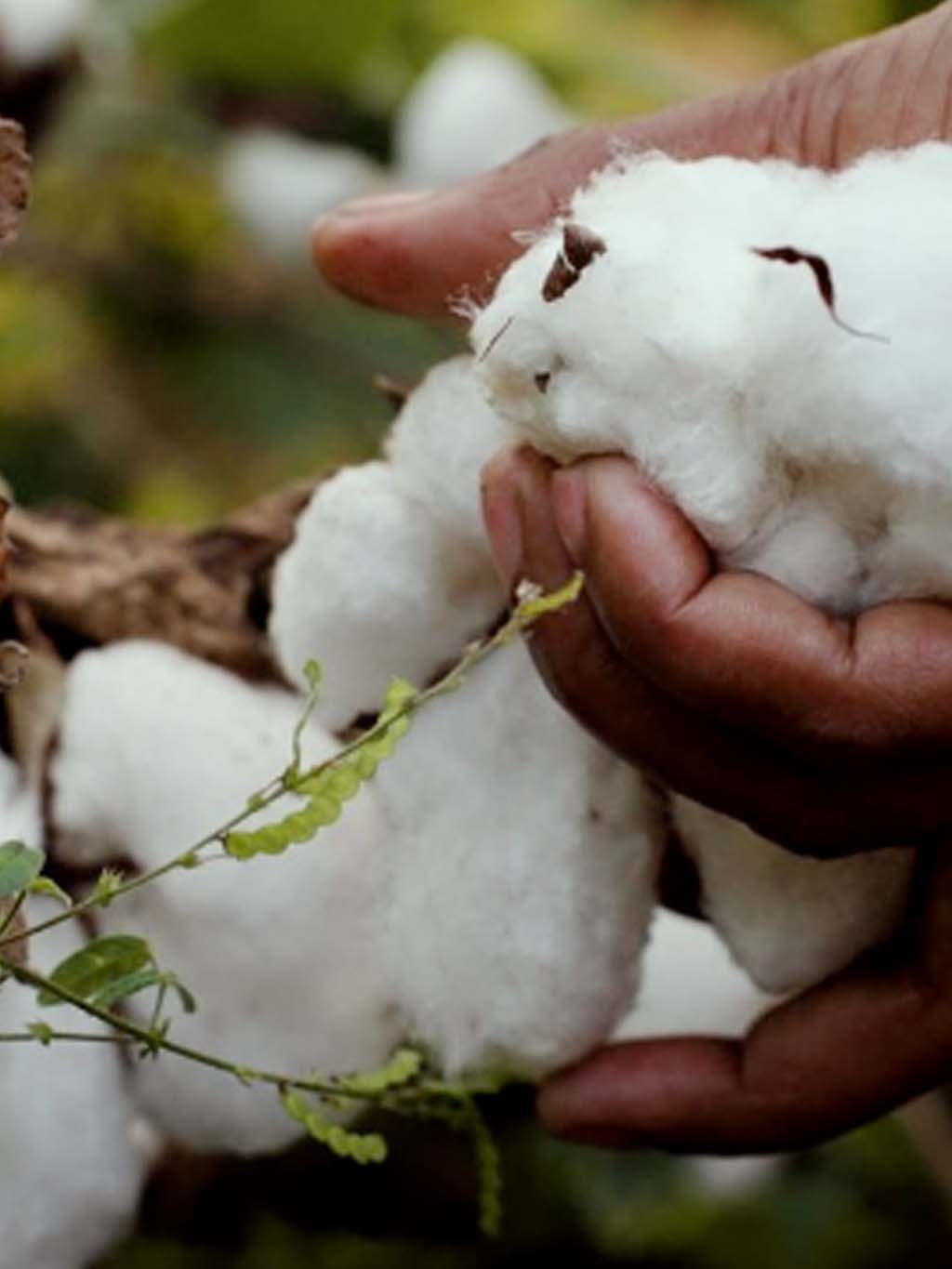
Recycled cotton
Recycled cotton is produced from both pre-consumer and post-consumer waste, including clothing and textile waste. The fibres are shredded, spun into new yarns and then woven into fresh fabrics. Recycled feedstock (raw materials that have been recovered from waste) is one of our preferred choices as it reduces the need for virgin raw materials.
All the recycled cotton used in our Clothing & Home products is certified against the Global Recycled Standard (GRS) and Recycled Claims Standard (RCS). Our supply chain adheres to both to verify accurate verification.
Better Cotton
We’re committed to improving cotton farming practices globally. For more than a decade, we’ve been partners with Better Cotton, a non-profit organisation with the mission to help cotton communities survive and thrive while protecting and restoring the environment.
Better Cotton works directly with farmers to transform cotton production. Through hands-on training, farmers learn to use water more efficiently, nurture soil health and reduce the use of harmful chemicals. Better Cotton also prioritises fair treatment, ensuring workers’ rights, well-being and livelihoods are respected.
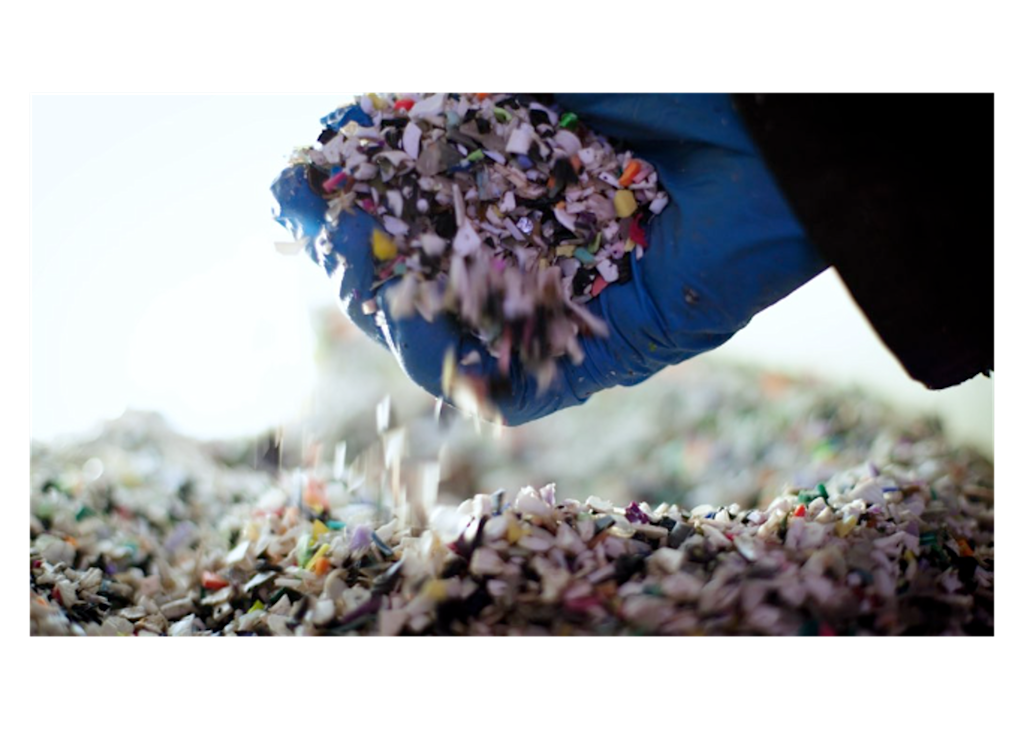
POLYESTER
Polyester is a synthetic material known for its durability and versatility, and it’s one of the most widely used fibres in the world. Virgin polyester is derived from crude oil, but it can also be recycled from packaging or textile waste. Recycled polyester is our preferred choice as it avoids the extraction of virgin materials and reduces waste. We have been increasing our use of recycled polyester and are committed to using only recycled polyester by April 2026.
All recycled polyester used in our Clothing & Home products is certified against the Global Recycled Standard (GRS) and Recycled Claims Standard (RCS). Our supply chain adheres to both to ensure accurate verification.
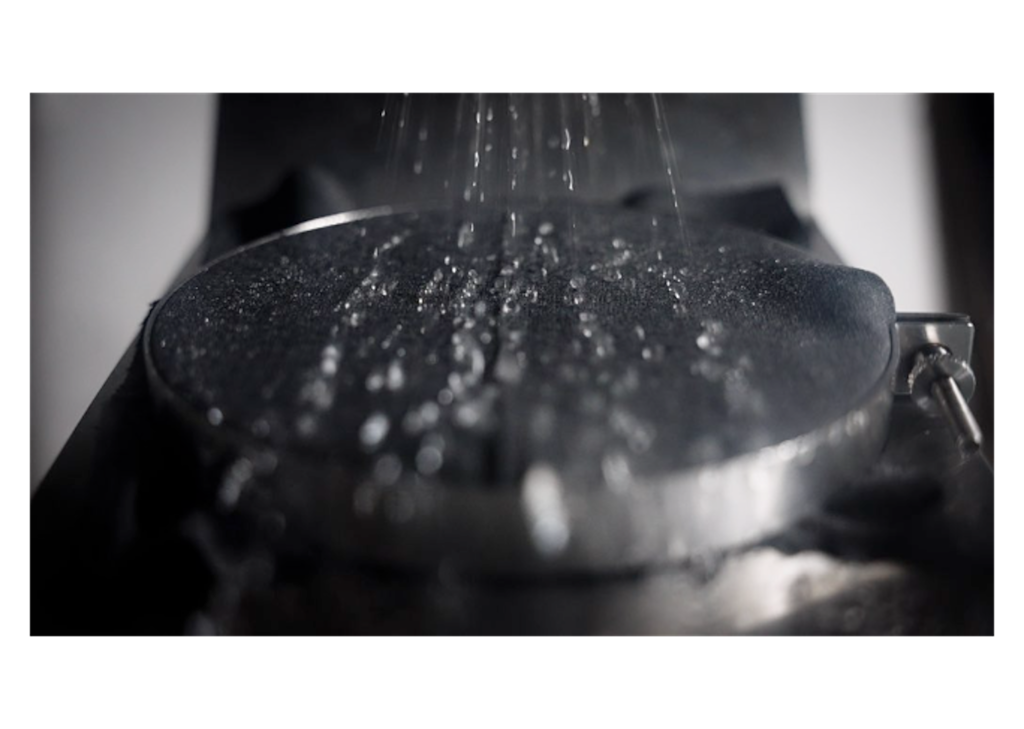
Nylon
Nylon is a synthetic fibre known for its durability and water-resistant properties. Virgin nylon is derived from crude oil, but it can also be recycled from pre-consumer and post-consumer waste, including clothing and textile waste. We are incorporating more recycled nylon wherever feasible. This involves sourcing post-consumer and post-industrial waste to be shredded into recycled fibres, spun into new yarns and made into fabric.
All recycled nylon used in our Clothing & Home products is certified against the Global Recycled Standard (GRS) and Recycled Claims Standard (RCS). Our supply chain adheres to both to verify accurate verification.
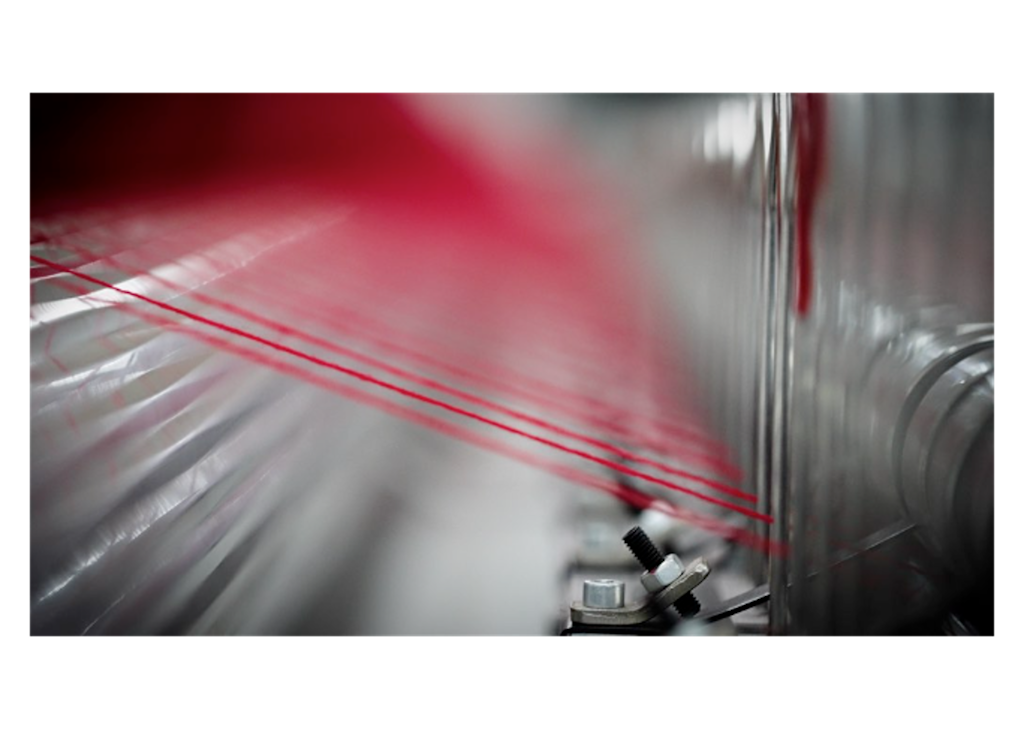
Acrylic
Acrylic is a synthetic fibre known for its durability and lightweight feel. It can be recycled from pre-consumer and post-consumer waste, including clothing and textile waste. We are incorporating more recycled acrylic wherever feasible. This involves sourcing post-consumer and post-industrial waste to be shredded into recycled fibres, spun into new yarns and made into fabric.
All recycled acrylic used in our Clothing & Home products is certified against the Global Recycled Standard (GRS) and Recycled Claims Standard (RCS). Our supply chain adheres to both to ensure accurate verification.
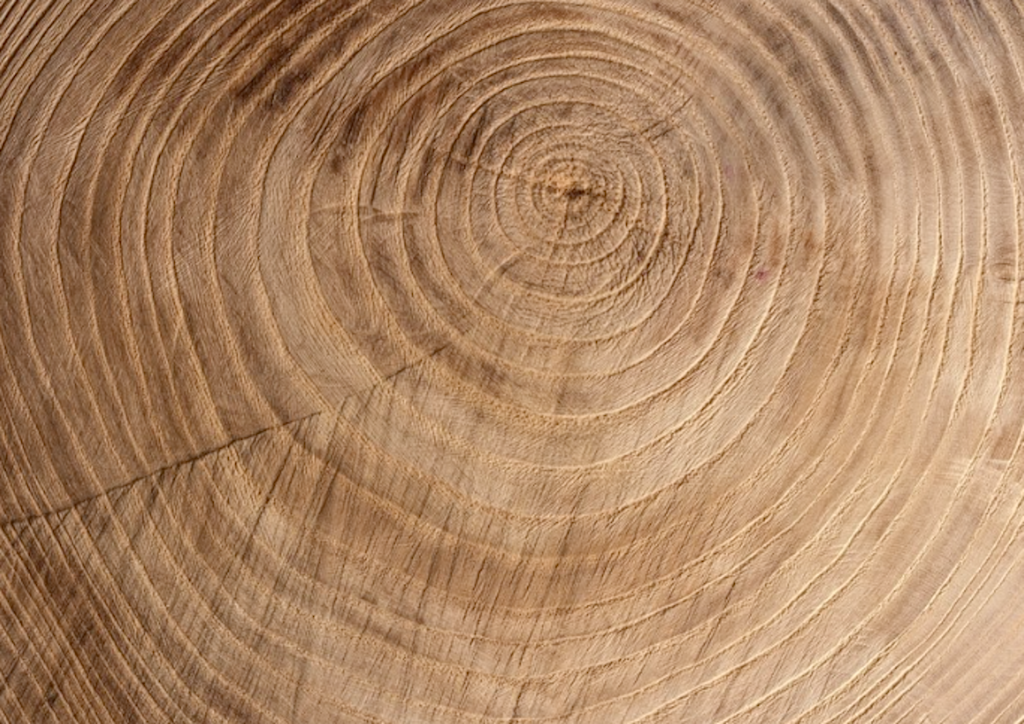
Man-made cellulosic fibres
Man-made cellulosic fibres (MMCFs), derived from natural materials like wood pulp, are known for their breathability and durability. MMCFs is the third-largest fibre category we use and includes materials such as viscose, lyocell and modal. By April 2026, we are committed to sourcing MMCFs exclusively from supplier partners who meet the highest environmental standards. This means MMCFs sourced with minimal deforestation risk in the supply chain and produced using the highest standards of technology. Find further information on these standards in our MMCF policy here (opens a PDF file).
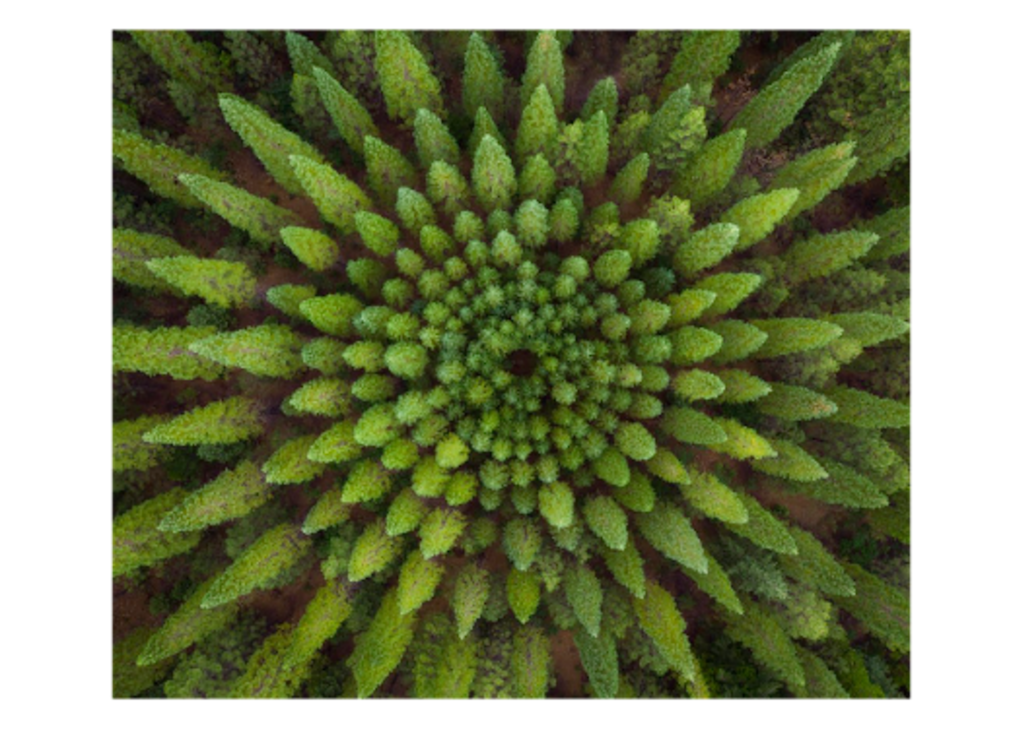
CANOPYSTYLE INITIATIVE
As a partner in the CanopyStyle initiative, we are committed to ending sourcing from ancient and endangered forests, endangered-species’ habitats and controversial sources and support lasting conservation solutions. It’s important that all our MMCFs are sourced in a way that addresses the major environmental and social impacts of timber harvesting, in line with Canopy’s mission.
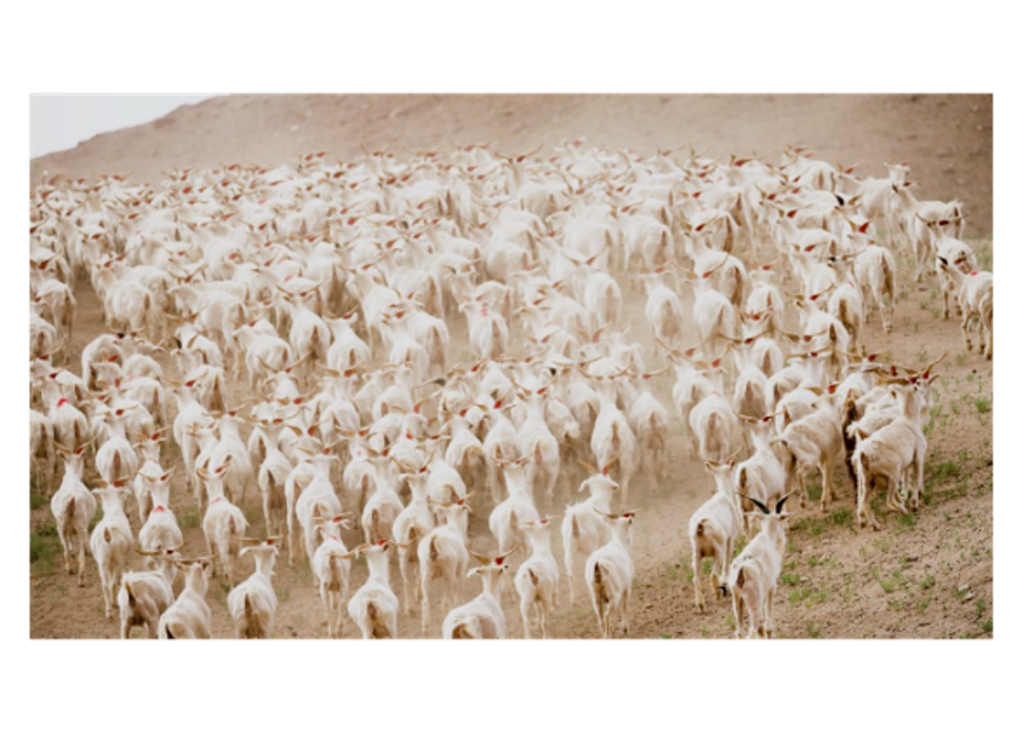
Animal-derived materials
Animal welfare is a top priority whenever we use animal-derived materials. We are committed to ensuring the health and wellbeing of all animals involved in our supply chain, and work closely with our partners to uphold the highest standards for sourcing and care. We use a variety of animal-derived materials, including wool, leather, cashmere and feather and down, and we strive to use certified fibres to verify high animal welfare standards. We are also increasing our use of recycled animal fibres wherever possible.
All our animal-derived products are sourced in alignment with our Clothing & Home Animal Welfare Policy, which is grounded in the internationally recognised ‘Five Freedoms’ framework recommended by the UK Farm Animal Welfare Committee. This approach guides our commitment to continually improving sourcing standards for animal-based materials.
We collaborate with industry-leading organisations and NGOs to advance our practices and support positive, systemic change across the industry. As members of global standard-setting bodies like Textile Exchange, the Sustainable Fibre Alliance (SFA) and the Leather Working Group (LWG), we are dedicated to promoting responsible sourcing of animal-derived materials worldwide.
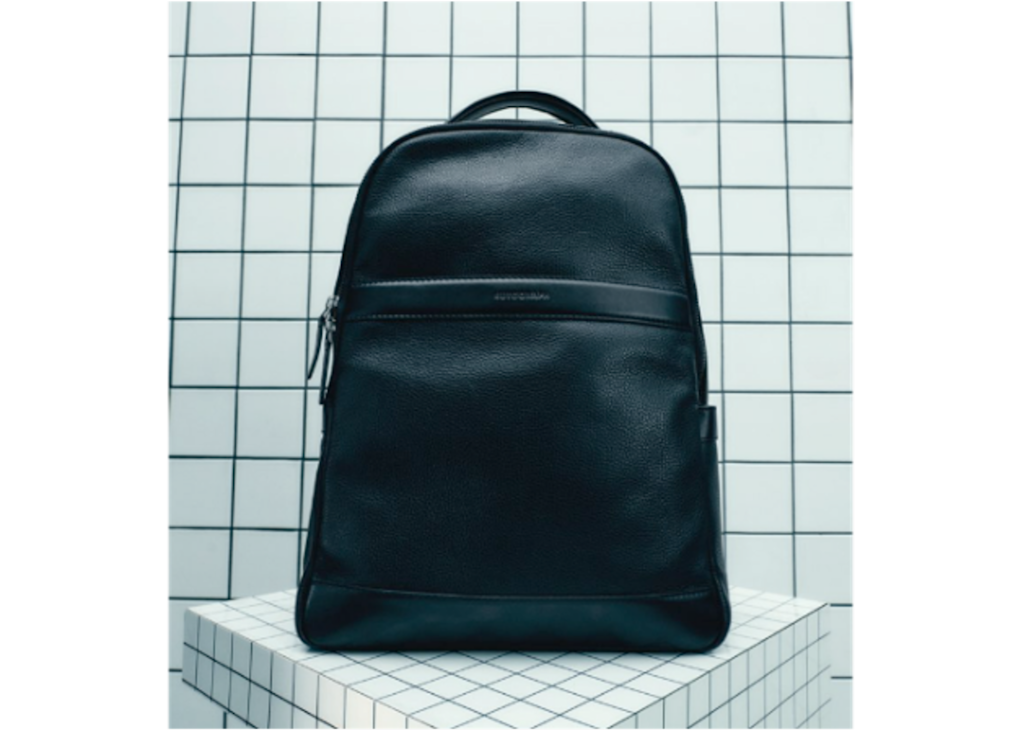
Leather
Leather is a strong and durable material, and we are dedicated to supporting responsible leather manufacturing worldwide. As members of the non-profit Leather Working Group (LWG) since 2005, we work to promote excellence in the leather industry. The LWG is committed to reducing the environmental impact of leather production, as well as challenging industry perceptions.
In June 2023, we achieved our goal of sourcing 100% of our leather from LWG-certified finishing tanneries. In 2023, we were among the first UK retail brands to commit to sourcing bovine leather from a deforestation-free supply chain by 2030. In support of this commitment, we signed the Deforestation-Free Call to Action for Leather, in partnership with the Textile Exchange, LWG and WWF.
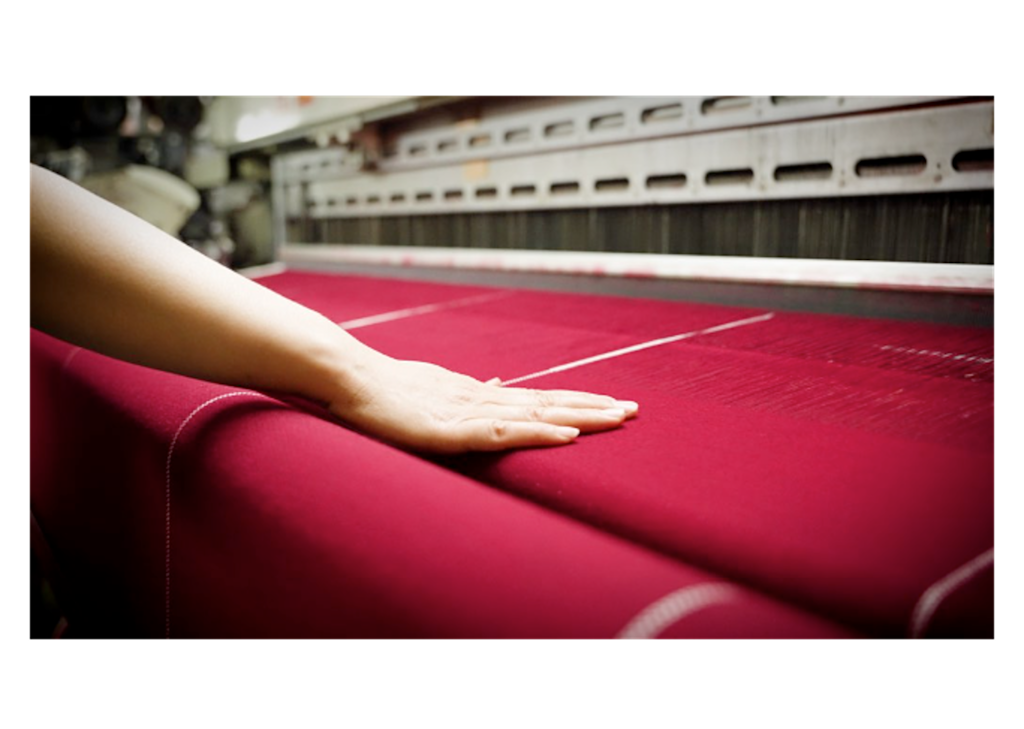
Cashmere
Cashmere is warm, soft and luxurious, and the fibres in all our pure cashmere products are certified by the Sustainable Fibre Alliance (SFA). Since 2018, we’ve been an active member of the SFA, which is a non-profit international organisation working with the extended cashmere supply chain, from herders to retailers. By sourcing SFA-certified cashmere, we contribute to the promotion of the work done by the SFA.
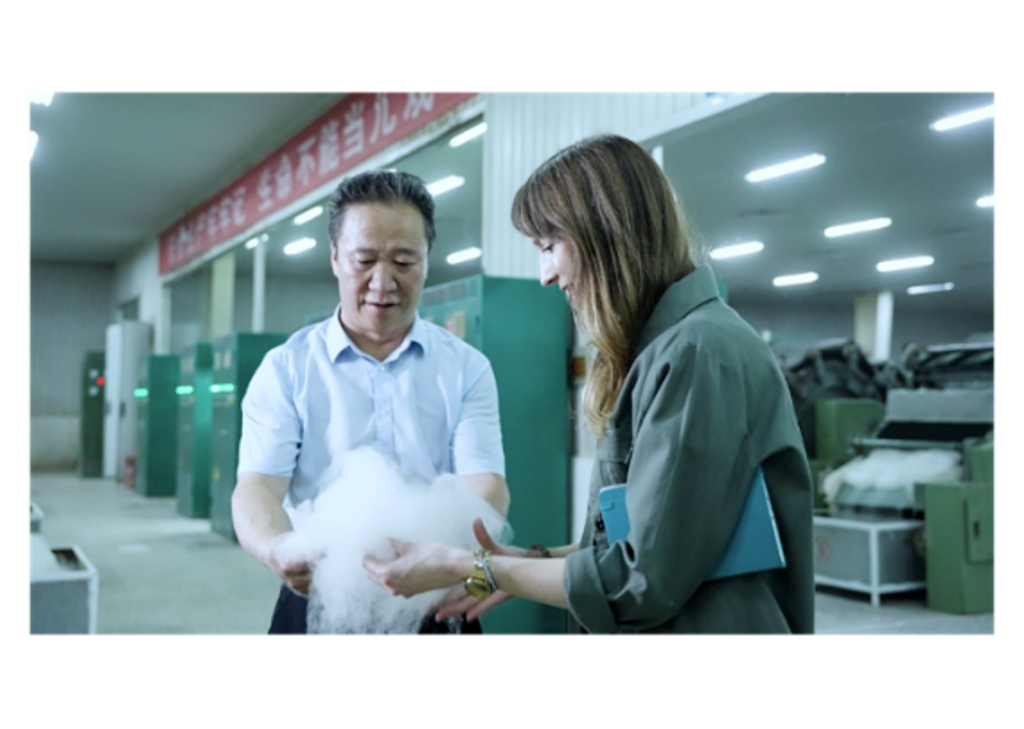
Wool, mohair & alpaca
Wool, mohair and alpaca are all exceptionally durable, resilient and warm fibres. We are committed to sourcing them via our preferred sources: the Responsible Wool Standard (RWS), Responsible Mohair Standard (RMS) and Responsible Alpaca Standard (RAS). It is a minimum requirement of M&S that all our mohair is certified under the RMS and all our alpaca fibres are certified under the RAS. Our minimum requirements for virgin fibres verify they are sourced through preferred channels, such as standards that uphold animal welfare.
All three fibres can be recycled, for which we follow the Recycled Claim Standard (RCS) and Global Recycled Standard (GRS).
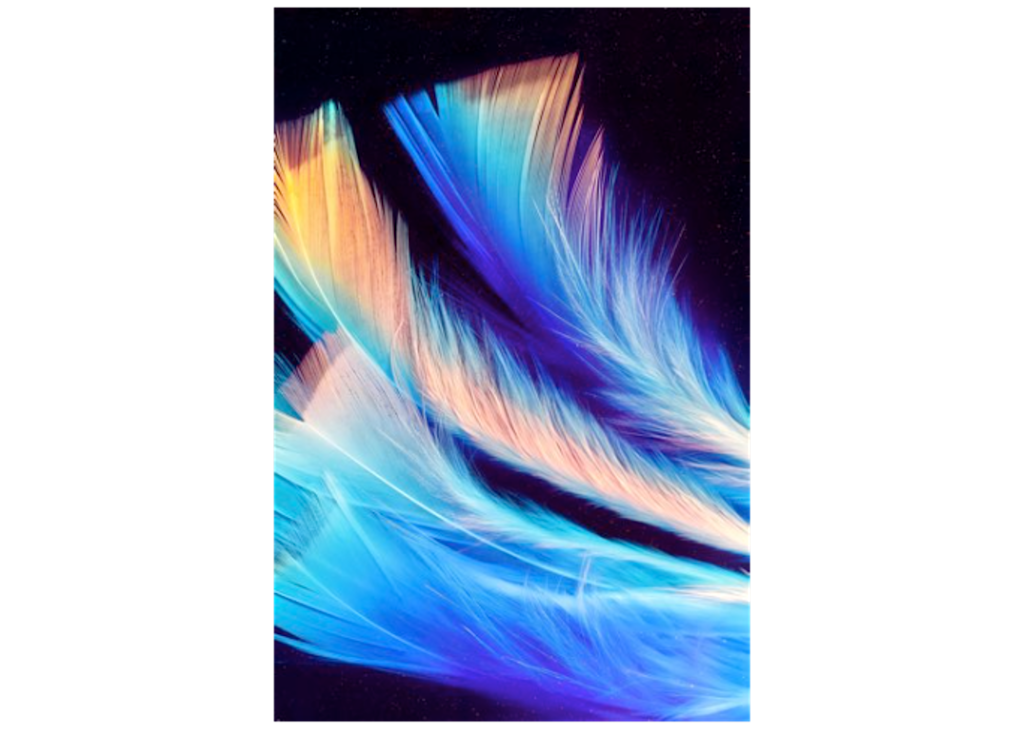
Feather and down
Feather and down are naturally warm and insulating fibres. We have a strict minimum requirement that all feather and down used in our products must be sourced through our preferred sources. This includes sources such as recycled, certified or with recognised animal welfare standards, including the IDFL Down Standard (IDS), the Responsible Down Standard (RDS) and the Global Traceable Down Standard (TDS). These standards verifyanimal welfare and provide full traceability throughout our supply chain.
For recycled animal fibres, we follow the Recycled Claim Standard (RCS) and the Global Recycled Standard (GRS).
STANDARDS
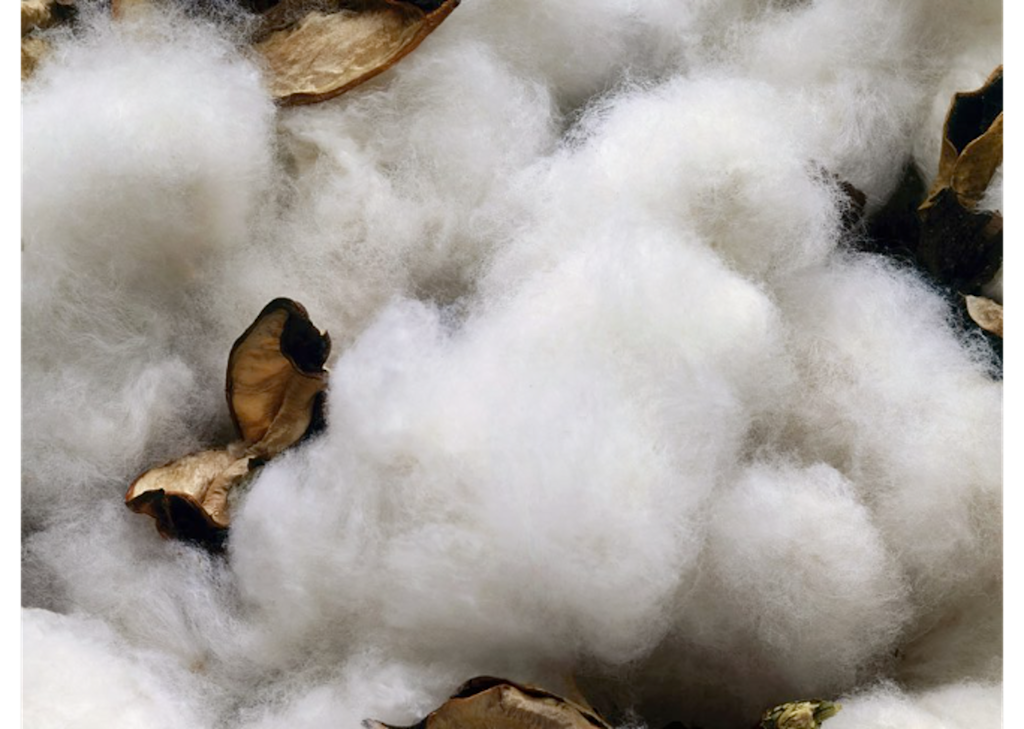
Better Cotton
The sourcing of cotton through Better Cotton relies on a chain-of-custody model called mass balance. Under the mass balance system, each kilogram of raw cotton produced by licenced farmers is associated with a Better Cotton Claim Unit (BCCU) while being mixed with conventional cotton. These ‘virtual credits’ are transferred along the supply chain until the finish products arrive in our stores. This system, while not allowing physical tracking of the cotton fibres up to the finished products, allows us to ensure that all cotton used by M&S is associated with a better alternative entering the global supply chain. As we track the volume of cotton necessary to make our products, we pay dedicated fees to Better Cotton to ensure continuity, scale up its training and support licenced farmers.
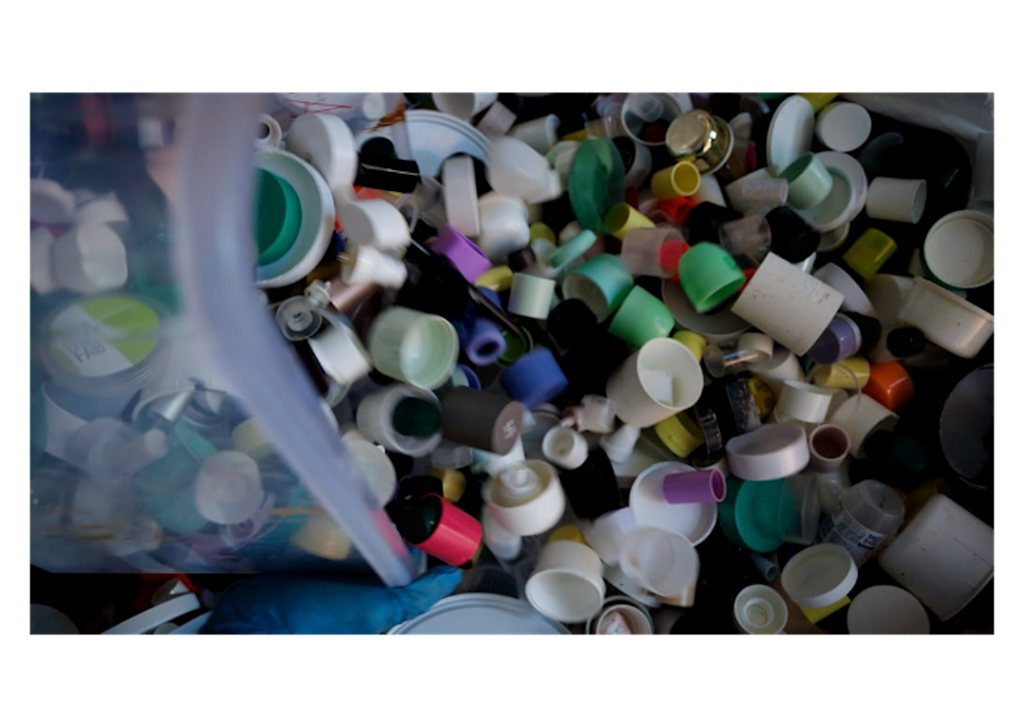
Recycled materials standards
The Global Recycled Standard (GRS) and the Recycled Claim Standard (RCS) both verify recycled content in products and set the criteria for third-party certification of recycled materials and chain of custody.
We have been an active member of the Textile Exchange since 2004. Textile Exchange is a global non-profit driving beneficial impacts on climate and nature across the fashion, textile, and apparel industry. They guide a growing community of brands, manufacturers, and farmers towards more purposeful production from the very start of the supply chain. Our goal is to help the industry to achieve a 45% reduction in the emissions that come from producing fibers and raw materials by 2030, while keeping our focus holistic and interconnected and seeking to improve the state of our freshwater, soil health, and biodiversity too.
We work closely with our suppliers to verify they are sourcing recycled materials and providing the appropriate certifications, including scope and transaction certificates, to maintain chain of custody. These certifications are verified by accredited governing bodies to verify compliance with all required standards. Any product claiming recycled status must adhere to our Recycled Material Policy, which mandates meeting the requirements for recycled fibres and being backed by accurate documentation and certifications. We also conduct monthly due diligence checks to verify ongoing compliance for these products.
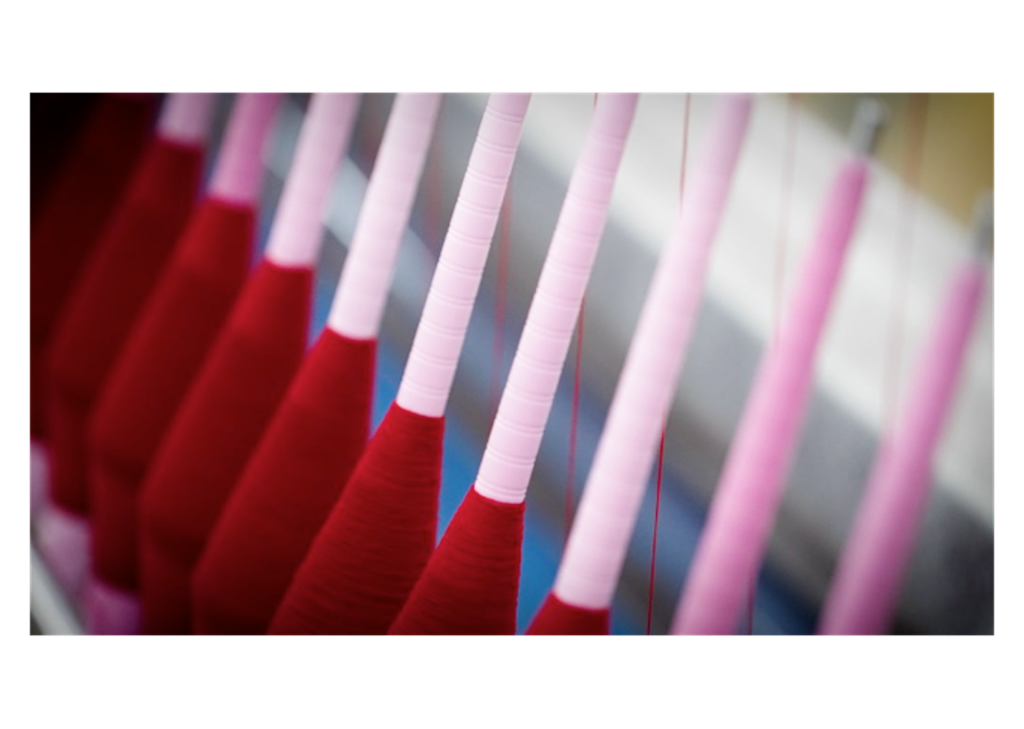
Organic materials standards
Global Organic Textile Standard (GOTS)
The GOTS was developed by leading standard setters to define requirements for organically grown textiles that are recognised worldwide. It looks at the harvesting of raw materials and environmental and social responsibility.
Organic Content Standard (OCS)
The OCS is a voluntary global standard that sets the criteria for third-party certification of organically grown materials and chain of custody. It verify that the identity of the organic content is maintained from the farm to the final product.
We have been an active member of the Textile Exchange since 2004. Textile Exchange is a global non-profit driving beneficial impacts on climate and nature across the fashion, textile, and apparel industry. They guide a growing community of brands, manufacturers, and farmers towards more purposeful production from the very start of the supply chain. Our goal is to help the industry to achieve a 45% reduction in the emissions that come from producing fibers and raw materials by 2030, while keeping our focus holistic and interconnected and seeking to improve the state of our freshwater, soil health, and biodiversity too.
We work closely with our suppliers to verify they are sourcing organic cotton and providing the appropriate certifications, including scope and transaction certificates, to maintain chain of custody. These certifications are verified by accredited governing bodies to verify compliance with all required standards. Any product claiming organic status must adhere to our Organic Material Policy, which mandates meeting legal requirements for organic fibres and being backed by accurate documentation and certifications. We also conduct monthly due diligence checks to verify ongoing compliance for these products.

Leather standard
Leather Working Group (LWG)
To ensure compliance with our leather policy, all leather goods suppliers and tanneries involved in our production process must provide detailed information on their supply chain, including (but not limited to) the country of origin of the raw hide and supplier details. All tanneries working with M&S must hold a bronze, silver or gold-medal rating and be listed on the LWG-certified tanneries directory. This check is conducted every six months, and we have a reporting process in place for all LWG-certified leather products.
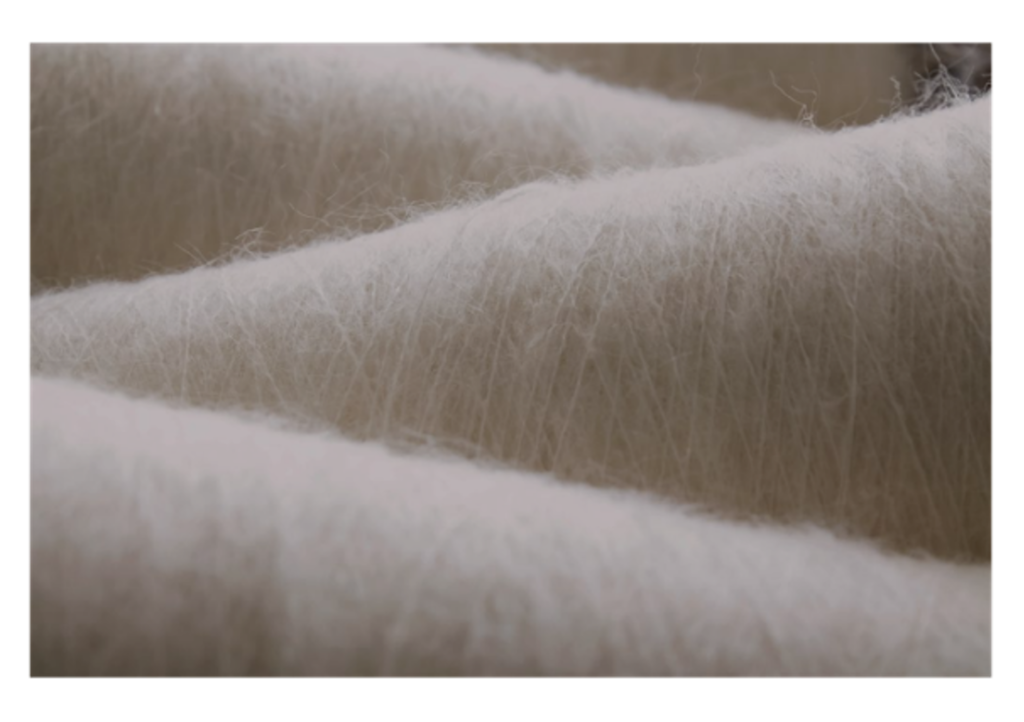
Cashmere standard
Animal Fibre Standard:
The Sustainable Fibre Alliance (SFA) aims to minimise the environmental impact of cashmere, safeguard herder livelihoods and improve animal welfare standards. It works with the end-to-end supply chain, connecting livestock herders to brands and retailers in the global fashion industry. The Animal Fibre Standard outlines five global principles for responsible cashmere production: effective management; decent work; biodiversity and land use; animal welfare rights; and fibre quality improvement. At M&S, we have adopted the SFA’s certification as a minimum standard for the fibres in all pure cashmere products.
We work closely with our suppliers to ensure they are sourcing SFA cashmere and providing the appropriate certifications, including scope and transaction certificates, to maintain chain of custody. These certifications are verified by accredited third-party conformity assessment bodies to ensure compliance with all required standards. Any product claiming responsibly sourced cashmere status must adhere to our Animal Welfare Policy, which mandates meeting requirements for cashmere products backed by accurate documentation and certifications. We also conduct monthly due diligence checks to ensure ongoing compliance for these products.
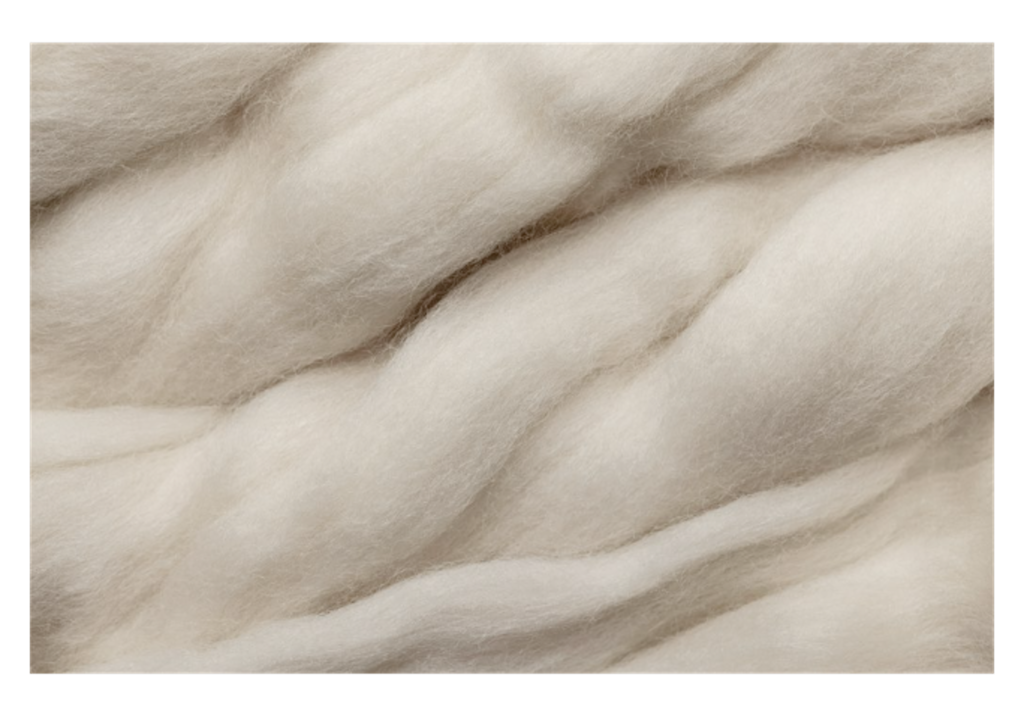
Wool, mohair & alpaca standards
Responsible Wool Standard (RWS)
The RWS is a voluntary certification that mandates all sites involved in the wool supply chain –from farms to sellers in final business-to-business transactions – to obtain certification. RWS farmers and ranchers are assessed based on criteria related to animal welfare, land management and social responsibility as outlined in the standard. This standard ensures products come from farms that take a progressive approach to land management and use the five freedoms of animal welfare, ensures full chain of custody and supports the industry with a tool that identifies farming best practices.
Responsible Mohair Standard (RMS)
The RMS is a voluntary certification that requires all participants in the mohair supply chain –from farms to sellers in final business-to-business transactions – to be certified. RMS farmers and ranchers are assessed against established criteria for animal welfare, land management and social responsibility outlined in the standard. This standard ensures products come from farms that take a progressive approach to land management and use the five freedoms of animal welfare, ensures full chain of custody and supports the industry with a tool that identifies farming best practices.
Responsible Alpaca Standard (RAS)
The RAS is a voluntary certification that mandates all entities in the alpaca supply chain – from farms to sellers in final business-to-business transactions – to obtain certification. RAS farmers and ranchers are evaluated based on established criteria for animal welfare, land management and social responsibility as outlined in the standard. This standard ensures products come from farms that take a progressive approach to land management and use the five freedoms of animal welfare, ensures full chain of custody and supports the industry with a tool that identifies farming best practices.
We work closely with our suppliers to ensure they are sourcing responsible wool, mohair and alpaca fibres and providing the appropriate certifications, including scope and transaction certificates, to maintain chain of custody. These certifications are verified by accredited governing bodies to ensure compliance with all required standards. Any product claiming responsible wool status must adhere to our Animal Welfare Policy and (where applicable) Recycled Material Policy, which mandates meeting legal requirements for fibres and being backed by accurate documentation and certifications. We also conduct monthly due diligence checks to ensure ongoing compliance for these products.
Our Wool Policy (opens a PDF file)
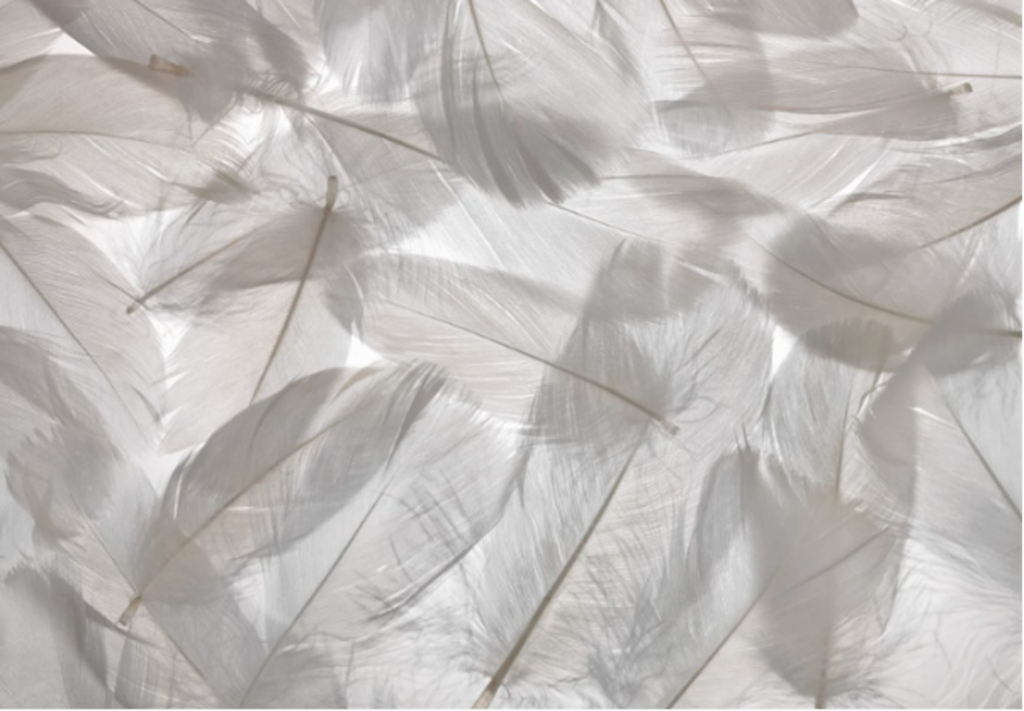
Feather and down
Responsible Down Standard (RDS)
The RDS is a voluntary certification that encourages the feather and down industry to treat ducks and geese more humanely. It helps mitigate the risk of feathers and down being sourced from animals subjected to unnecessary harm, while promoting higher welfare standards. The RDS also ensures a strong chain of custody, maintaining the integrity of certified materials as they move through the supply chain.
Global Traceable Down Standard (TDS)
The TDS addresses animal welfare by prohibiting unacceptable practices such as force-feeding, live plucking and molt harvesting. It also emphasises traceability, ensuring that down and feather materials can be tracked from the parent farm to the factory. This allows for comprehensive documentation of compliant materials used in finished certified products.
IDFL Down Standard (IDS)
The IDS verifies that feather and down products are ethically sourced, enabling processors, trading companies and manufacturers to showcase their commitment to providing responsibly produced materials. The IDS has a full chain of custody that begins at farm level.
We work closely with our suppliers to ensure they are sourcing responsible feather and down and providing the appropriate certifications, including scope and transaction certificates, to maintain chain of custody. These certifications are verified by accredited governing bodies to verify compliance with all required standards. Any product containing feather and down must adhere to our Feather And Down Policy, Animal Welfare Policy and (where applicable) Recycled Material Policy, which mandates meeting legal requirements for fibres and being backed by accurate documentation and certifications. We also conduct monthly due diligence checks to verify ongoing compliance for these products.
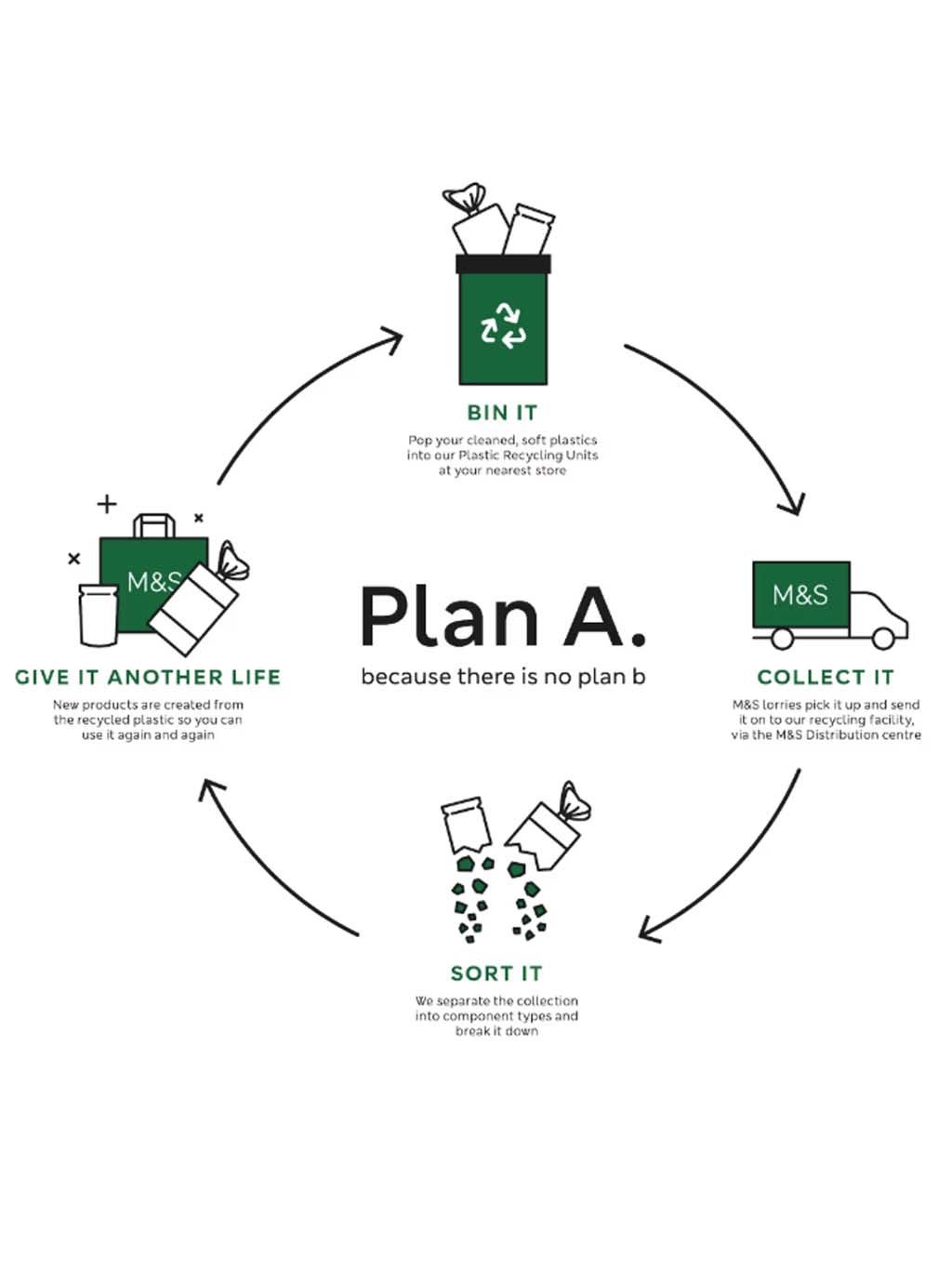
Plastic recycling
Less Plastic. How Fantastic
We’ve made reducing plastic a top priority: by reducing it in products and packaging, making it easier to recycle and giving it new life in take-back initiatives
You can recycle most plastics from any product in our M&S stores. From hard-to-recycle items such as biscuit packets and sweet wrappers (excluding beauty) to products not bought at M&S – just place them into our plastic recycling units in-store and we’ll take care of the rest
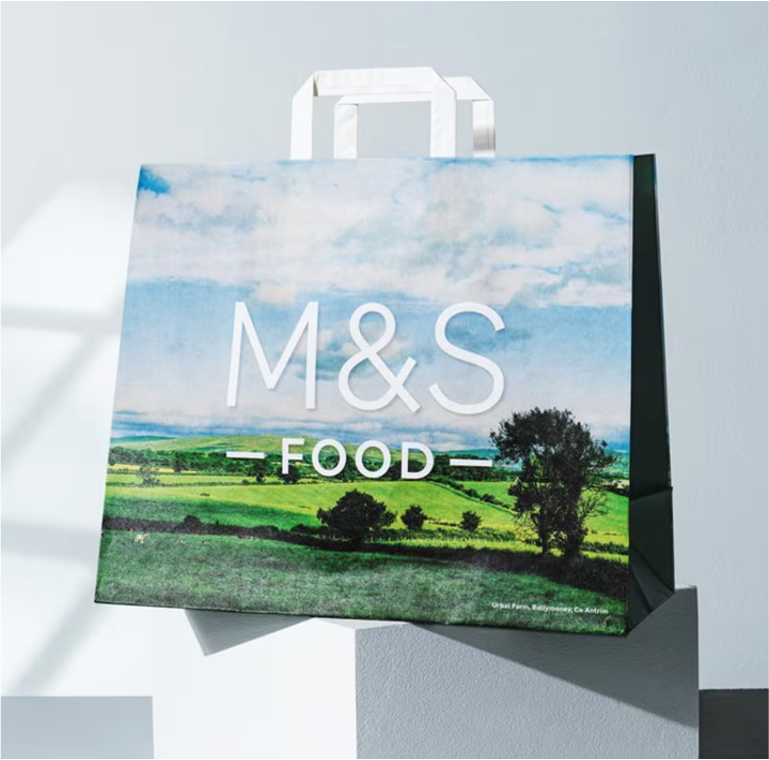
Carrier bags
We’re committed to reducing plastic, that’s why we’ve replaced our plastic carrier bags with paper ones. Our paper bags have all the benefits of plastic bags, but without the same environmental impact.
Our vibrant food bags are super strong and can carry up to 15kg – that’s the equivalent to more than six four-pint containers of M&S milk. They’re also water resistant, are easy to recycle and have been independently tested to withstand over 100 reuses
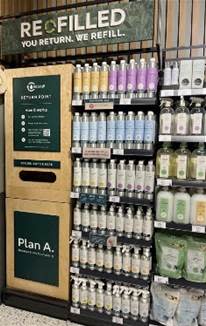
Refill stations
At M&S, we’re committed to reducing plastic waste, and our M&S Refilled initiative is making a real difference. This innovative scheme allows you to purchase selected laundry and cleaning products in reusable bottles, return the empty packaging, and have it professionally washed and refilled—ready for its next use.
Available in 25 stores and covering 10 essential products, this circular system helps cut down on single-use plastic while rewarding you for making eco-friendly choices. Simply return your empty M&S Refilled bottle, and you’ll receive a £2 voucher to use on your next purchase from the range.
A washing-up liquid bottle for life? We’re making it happen! Join us in creating a cleaner, greener future—one refill at a time.
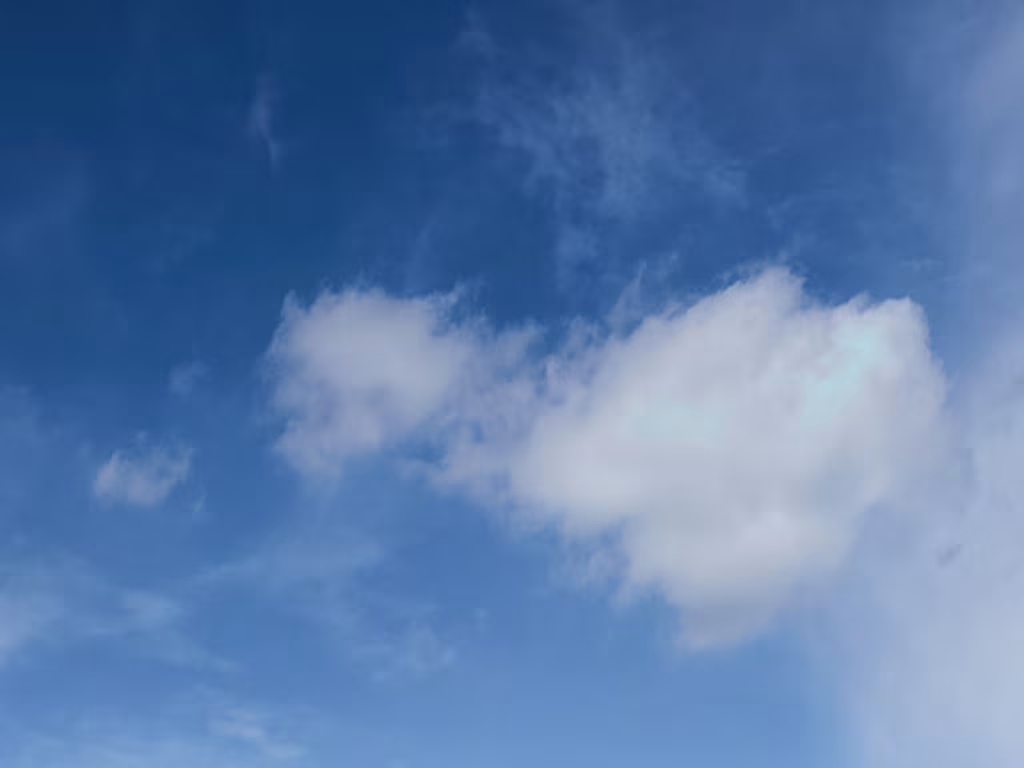
Our transition to net zero
How we do business. Find out more
Published 3.31.2025